#extremely lawful academics with anger issues
Text
RRR, Black Adam and the Response of the Oppressed
OR: The Colonial Wound and how to approach Violence as a solution against the mechanisms of oppression
OR: how to get the debate right VS how to ruin it completely

Spoiler: RRR gets it right
So, I was keeping this one to myself because it's a very delicate subject, but rejoicing in RRR's recent Golden Globe nomination, I thought hell might as well talk about it.
First of all, a very important disclaimer:
I am not here, in any way, defending or endorsing any side in this debate. My personal views on violence and armed struggle and guerrilla warfare are not what I will be addressing. Armed struggle, is an extremely complex issue that is still being debated today by theorists and academics much more qualified than I am, so no.
Rather, my aim here is simply to address how this debate has been represented, and my take on this issue: media portrayals of social, historical and most importantly, decolonial debates. And recently in 2022, we've had two approaches (And yes, I am fully aware that this topic is much better covered in dozens of media that have this debate entirely as their main focus, but I am talking about superhero blockbusters here, so keep that in mind) that may seem similar, but are fundamentally completely divergent:
The Telugu movie RRR (Rise, Roar, Revolt)
And curiously, DC Film's Black Adam
No need to say, there'll be major spoilers ahead, so be warned
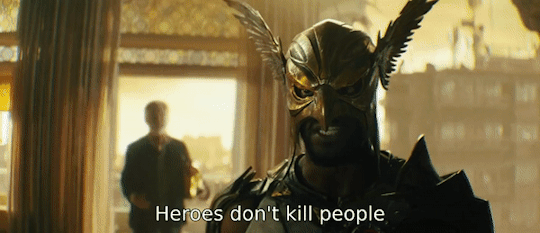
1. THE RESPONSE OF THE OPRESSED
Before I start, I would like to clarify as briefly as I can some terms and concepts that I consider necessary to begin to understand decolonialism and the response of the oppressed, a term that was coined in the famous quote by Jaylen Brown during the height of the BLM movement, "Do not confuse the response of the oppressed with the violence of the oppressor".
Pierre Bourdieu differentiates the violence of the oppressor into two categories:
explicit violence – in which the action of the dominant subject is visible (and therefore, in our current society, subject to questioning and legal or moral limitations)
and symbolic violence – conceptualized by Bourdieu when he addressed the issue of male domination in society and all the faces in which it presents itself – and we see it everywhere, from racial demographics in income distribution to that homophobic joke your uncle always makes.
This relationship of systematic domination can be understood as a chain, and in view of the necessary rise of awareness and consequent rupture of this chain, Audre Lorde presents the uses of anger.
By connecting the idea of symbolic power and the breaking of the domination relationship with the use of anger, we have the explosion of a natural reaction of the oppressed triggered by centuries of imprisonment in their own fear and, bringing this reality specifically to colonial relations, using anger over your own fear results in liberation. (source)
And although it wouldn't hurt to address the revolutionary terms in its most famous roots in the French Revolution and etc, here it seems more fitting to comment on Marx. And class struggle.
Briefly, Marx and Engels saw revolution as the result of organized political action by the exploited. Therefore, one can only speak of revolution when there is a rupture with the old political, social and economic order; and in its place, new standards of social relations are established whose principle is to ensure freedom and social equality among men.
This is what we mean when we talk about inverting the social order, and Marx will also use the terms infrastructure (productive forces + relations of production) and superstructure (politics, police, army, law, morals, religion, etc.).
The superstructure, for Marx, is created by the most favored and dominant class, but determined or conditioned by the infrastructure.
Therefore, the revolution would happen when the working class (and in that logic, any oppressed group) reversed the order and took control of the superstructure.
In short, this can be understood as the basis of revolutionary thinking.
Now apply this to the invasion, colonization and genocide scenario, and you'll see where I'm going here.
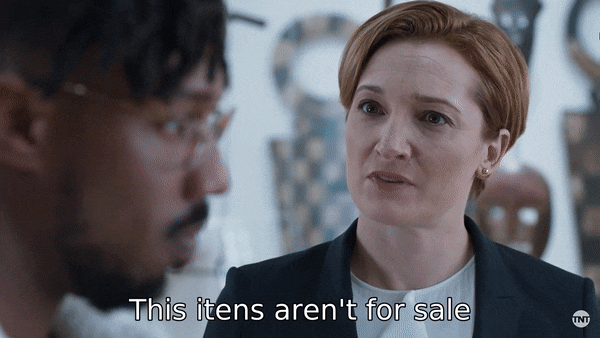
KKKKKKKKKKKKKK THAT'S A BIT EXTREME EXAMPLE SORRY but actually in Black Panther I the plot could very well be read through Marxist lens (and that has certainly been done), but I won't even go into that here, god forbid Wakanda Forever hahahah imagine that, anyway going back to my thread
2. ARMED STRUGGLE
A quick definition of armed struggle, which can be found in dictionaries, is armed resistance against oppressive regimes. In the armed struggle, the militants understand that the situation of society requires drastic action so that it can be modified, and for this reason they decide to take up arms and declare war on the oppressive regime. Guerrilla warfare is an example of armed struggle.
In the armed struggle, a group of militants opposed to the current regime in a given society, organize actions that can be strikes, attacks on barracks or public buildings, etc, aiming to destabilize the current power with the aim of overthrowing it and placing a different regime in its place, like a democracy, for example – in general, the armed struggle follows a leftist tendency. (source)
In Brazil, for example, the armed struggle appeared mainly as resistance to the Military Dictatorship between 1964 and 1985.
All of this goes along the idea of using violence as resistance to oppression (as already pointed out before): fire is answered with fire. In the specific scenario of the guerrilla, the French philosopher, journalist, former government official and academic Jules Régis Debray writes the controversial book Révolution Dans La Révolution, where he points out that "The main objective of a revolutionary guerrilla is the destruction of the enemy's military potential"; the enemy is stripped of it's military power (it's weapons) to ensure a greater chance of victory.
"To destroy an army you need another army.", Debray says. "Precisely because it is a mass struggle, and the most radical of all, the guerrillas need, in order to triumph militarily, to gather politically around themselves the active and organized majority, since it is the general strike and the generalized urban insurrection which will give the coup de grace to the regime and destroy its latest maneuvers - last minute coup d'état, provisional junta, elections - by extending the struggle throughout the country." (source)
Does that all ring a bell?

Sure it does.
Now, these are all historical scenarios, and nowadays the moral debates about armed struggle have become extremely more complex (as they should), and the disarmament discourse is taking more and more space in these debates. Is armed struggle the only solution? Wouldn't there be others?
But it is still a complex debate. The Brazilian rapper (and political thinker and, dare I say, philosopher) Mano Brown, a strong advocate of disarmament, staunchly defends that violence, most of the time, bounces back on the oppressed, not the oppressor.

Look at him all precious
He argues, however, that one cannot simply condemn the oppressed who react violently. Already in 2006 he presented in an interview that:
"I am in favor of disarmament, but this argument is difficult, things should be done differently […] People are coming as a class struggle, you know? Rich people don't want poor people to arm themselves and remain unarmed. And poor people don't want rich people to arm themselves and remain unarmed. Did you see the kid's argument: "How are the police allowed to carry guns while I remain unarmed? " It's kind of uneven. It's confusing."
(source - translated by me)
Mano Brown is part of the Brazilian rap band Racionais formed by 4 black men from the periphery, who revamped their music after realizing that it could be used to foment violence. They front a series of social programs, and revolutionized the way peripheral music is seen and consumed. Nowadays, in 2023, Mano Brown hosts one of the biggest political interview podcasts in Brazil (having even interviewed Angela Davis), is considered one of the most active leaders of the racial struggle, and along with the other members of Racionais, has taught open classes in estate universities.
The Brazilian educator and philosopher Paulo Freire, considered one of the most notable thinkers in the history of world pedagogy, inaugurates in his book Pedagogy of the Oppressed (you can read it translated right here) the idea of the liberation pedagogy. He strongly emphasizes that liberation pedagogy is a political process that aims to awaken individuals from their oppression and generate actions for social transformation – through education.
NOW WITH ALL THAT IN MIND WE CAN FINALLY MOVE ON TO WHAT MATTERS,
3. THE MOVIES
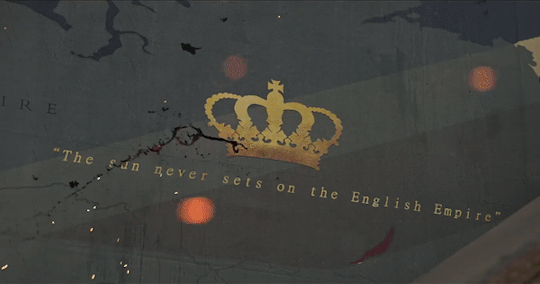
I'm going to talk about RRR here first because it makes me happier, but for reasons of time and your patience I'm not going to extend myself so much in the analysis of this film technically, and if you want a more detailed look at the grandeur and the importance and the genius of this film, please watch any of the many videos that are now appearing on youtube on the subject (I recommend RRR: Make Movies EPIC Again, by Jared Bauer, and The Importance of RRR, by the wonderful Accented Cinema)
ONCE AGAIN ATTENTION FOR BIG, MAJOR SPOILERS AHEAD
The story therefore revolves around two men: Raju, who infiltrates the British army to steal fireguns and deliver them to the people's guerrilla, and Bheem, a Gond leader who is after Mali, a child of his people who was kidnapped by the British to basically serve as a pet.
They meet under false identities, and unaware that they were both fighting for the liberation of India (through different methods), the two men form an extremely strong bond of love and friendship, which results in their struggles coalescing into an evocation of patriotic unity and popular resurgence against the colonial forces.
First of all, RRR is a fictionalized biography of two real-life Indian revolutionaries, Alluri Sitarama Raju and Komaram Bheem. So, in real life, Alluri Raju actually stole guns from the British to stage uprisings against the British Raj, and Komaram Bheem really was a Gond revolutionary leader who coined the slogan Jal, Jangal, Zameen (transl. Water, Forest, Land) wich became a call to action for Adivasis (or Scheduled Tribes) peoples.

You can see the flag in the last scenes
This "historical aspect" (in addition to the incredible, completely impossible and impossibly glorious action scenes) makes it plausible to draw parallels between RRR and Tarantino's historical revisionism films like Django Unchained (2013) and Inglourious Basterds (2009), where in all cases we see scenes of extreme violence that somehow feel justified, or cathartic, for being directed against oppressors (slave masters, Nazis, British colonizers, etc etc)

The parallels are just there.
Black Adam, on the other hand, states in its synopsis that "After nearly five thousand years of imprisonment, Black Adam, an anti-hero from the ancient city of Kahndaq, is released in modern times. His brutal tactics and righteous ways attract the attention of the Justice Society of America, who try to stop his rampage by teaching him to be more of a hero than a villain, and they all must band together to stop a force more powerful than Adam himself."
So we have a superhero story set in the present day in a fictional country on the Sinai Peninsula (that means, right there besides the Gaza Strip and the Suez Canal), occupied by a mercenary crime syndicate called Intergang, who brutally oppresses the Kahndaqi people while robbing their mineral resources. All good, all great.
But as stated in the synopsis, the film's great moral conflict revolves around whether the use of violence against mechanisms of oppression is justified or not.
Basically,

And while these two scenarios may seem similar, the approach the two films take to this debate, which, as I've said before, is EXTREMELY DELICATED, and EXTREMELY COMPLEX, is completely different. Firstly, because RRR is the only one of the two that treats it as, well, a debate.
From the beginning, RRR establishes the two characters as essentially polar opposites; Raju is fire

Look at the scenery with the european buildings in the background
Bheem is water
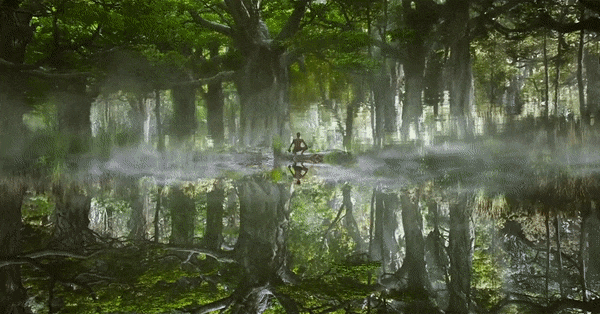
And here, the native, untouched forest with pure cristaline water
Bheem is the god Bhima, immovable, patient and resilient
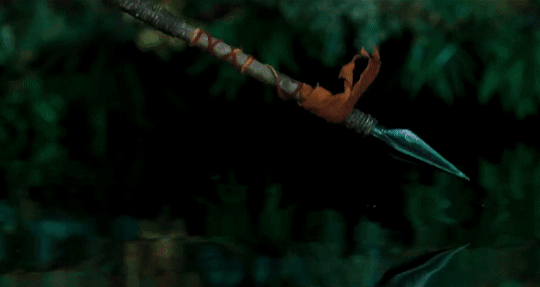
(like water)
And Raju is the god Rama, heroic, springy and skillful
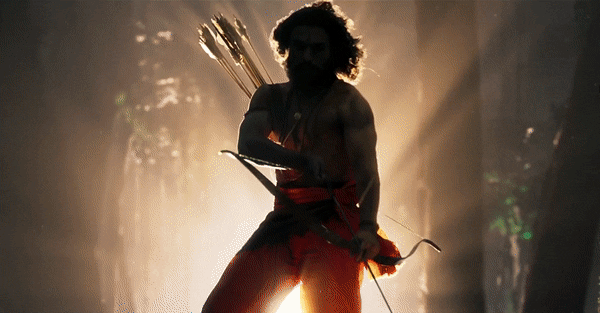
(and hot)
Bheem is the legs (the foundation) while Raju is the arms (the action)
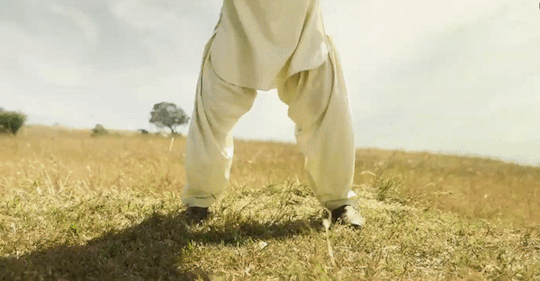
They ✨ complement ✨ each other
And this is translated into their different approaches to the revolution: Raju with his arms policy (inherited from his guerrilla father), who operates within the system to overthrow it, and Bheem with his native philosophy, using the land, the fauna, the culture, the religion, the people themselves as agents against oppression, operating from outside the system to overthrow it.
At the beginning of the film, Raju dresses Bheem in western clothing so that he can attend a British party (which allows him to know the building and locate Mali), and at the end of the film, Bheem dresses Raju in the traditional clothing of the god Rama, and arms him not with european firearms but with a sacred bow and arrow, evoking his native homeland in what configures the real defeat of the colonizers.
Not even getting into the merits of comparing these two films technically, just talking about the discourse itself, what for me fundamentally separates RRR from Black Adam, and even Django and Inglourious Basterds, is precisely Bheem's character. It's the other way to fight (but fight nonetheless)
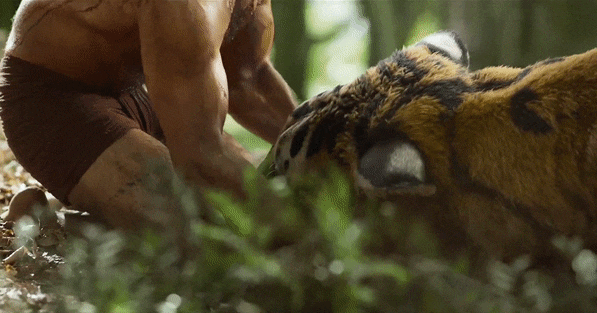
This does not mean that the armed struggle is delegitimized, or diminished. On the contrary, it is explained, justified (within that historical and social context) and respected. People who fought in the armed struggle, and died in the armed struggle, are honored and respected. It allows you to understand where the idea of arming the population is coming from (in a certain parallel with Mano Brown's interview that I mentioned above), but it also presents other discussions on the subject, that happened at the time, and still happens today.
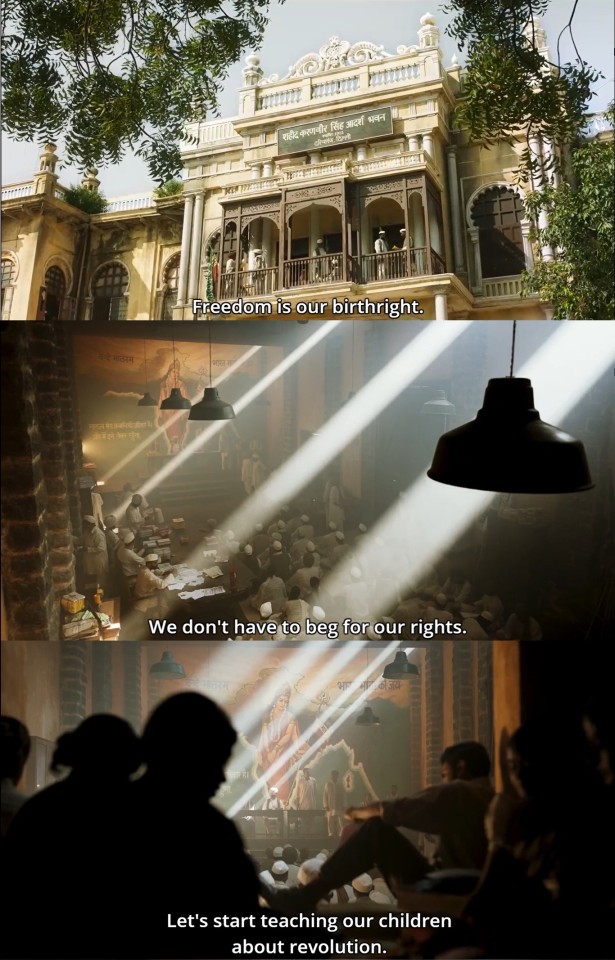
And above all, as I mentioned before, the film presents and reinforces the idea of inspiration. Even if education is presented only very briefly, in a popular assembly, in the long term, the film still gives extreme focus to the importance of raising awareness among the oppressed people.
This can be clearly seen in the scene where Bheem is being tortured in a public square by the British government, and refuses to kneel.

So when the torture becomes too much to bear, he starts to sing

Now, this is the most important scene in this movie and I'll die on this hill
And then, this happens
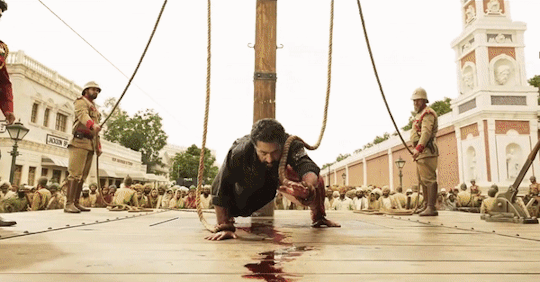

Bheem inspires not only the population, but also Raju, who even after years of enticement by his own father, steps back on his original (armamentist) plan when he realizes that "I was under the impression that guns would bring us freedom. But Bheem inspired a whole crowd with one song"
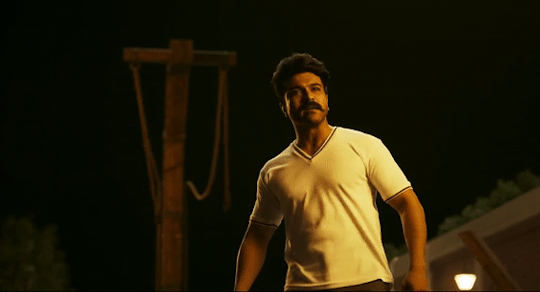
Even though in the context of the film the "path of choice" was still violent (this still is, after all, an action superhero movie), the message of this scene is extremely metaphorical. The idea of a song (art) inspiring all people to "become a weapon" against an oppressive regime is very powerful, and it resonates deeply in anti-opression movements all over History. It is, literally, the power of the people.
Furthermore, at crucial moments in the plot, both Bheem and Raju put aside their collective struggles for the other's individual good; Unlike his father, who readily accepts the militarization of his child son for the greater good, Raju, when questioned by his guerrilla companion for abandoning 15 years of work to save Bheem, says that "I will bear it for another 25 years, but I won't sacrifice Bheem for my goal".
Bheem, here, represents not only the friendship and love between them, but, metaphorically, an entire ideal of the people. Ultimately, one can say that this film addresses the idea of "what are the limits in my revolution": I will not sacrifice the other for my revolution; the limits of my revolution must be the wellness of the other (and in our metaphorical reading here, the wellness of the people).
Parallel, the torture scene can be metaphorically read as: the only valid sacrifice is my own, never that of the other. (and I won't be commenting on the revolutionary character of ideas like martyrdom and self-sacrifice, but yes). That's what Bheem and Raju do throughout the entire film, they put the other above themselves.
And in the end, they kill the british defeat oppression together✨
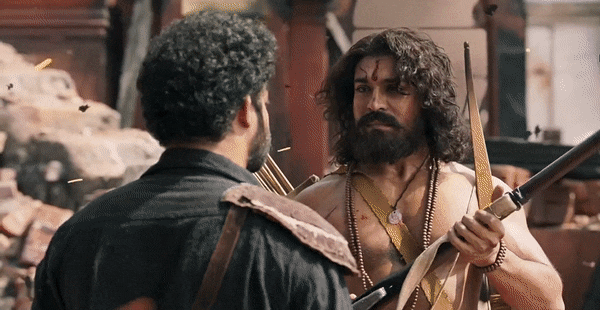
Now, as I've mentioned before, yes, this movie still ends violently, yes, it still glorifies and celebrates this violence in some of the best action scenes I've seen in my whole life, yes, it is heavily patriotic and sometimes a little bit too on the nose about it, yes, and did I rejoyce in it? Yes.
But it cannot be denied that RRR at least presents a reflection not often seen in films of the genre, which is the mere existence of real debate. In addition, the film is placed in an extremely specific historical context, portraying real historical figures, real life revolutionaries, folkloric parallels, a gigantic symbolic charge, in short, a whole other deal.
Besides it, the only difference between this film and idk, Braveheart, or Star Wars, is that in this film the social and racial parallels, the guerrilla warfare and class struggle (and the colonial wound) become clearer – and perhaps this is a more responsible way of representing a revolution.
NOW, BLACK ADAM ON THE OTHER HAND KKKKKKK
As mentioned in the synopsis, the background of Black Adam is curiously similar: we have an oppressed people, we have the militia, a clear racial reference to a real-life conflict, which affects thousands of people daily, and the figure of a mythologically evocative hero with super powers who will free the people from oppression through violent means. And yes, there is debate: we have the Justice Society, which condemns Black Adam's methods and questions his use of violence, only to be proven wrong at the end of the movie.
But the "proved wrong" isn't really built, or developed (as Intergang is quickly forgotten when they all start fighting each other and then… Satan? For some reason??), and it basically boils down to this:
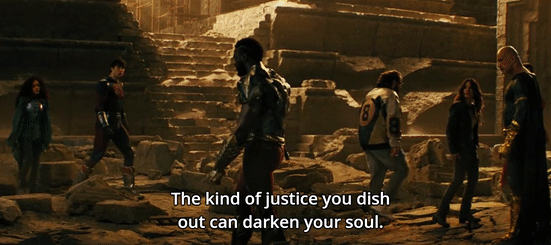
KKKKKKKKKKKKKKKKKK
And that's so funny because he actually just… killed like 3 soldiers in the second act of the movie. That's all he did.
And it gets even funnier because at some point we have a scene that genuinely makes a VERY VALID point that made me very hopeful when I was in the theater watching it

Like, this is SO VALID and she is SO RIGHT and this is such a great argument and a great debate point and then it just... goes nowhere

He just killed like 3 guys he didn't even talk to the people he just, quite literally, killed some pawn soldiers and went on to fight his own individual battles that had nothing to do with the actual opression state of the country besides them telling you that "it was bad".
The problem with Black Adam's is ac how shallow the argument is. Nothing is justified, nothing is not even debated, we just have Hawk Man going "killing is bad" and Black Adam going "yeah but I do it caused I'm disruptive like that", and even when we have this "inspire the people" moment is just... this kid with a cape doing this symbol and yes, symbols of struggle are a great tool in fighting oppression, and yes they work and they're so, so great, but this one specifically kind of just…was there?
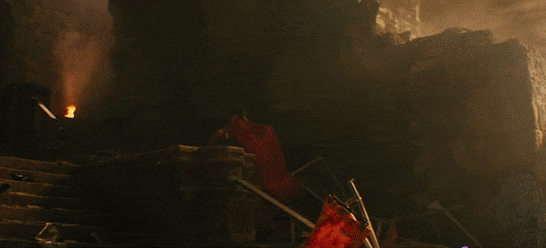
LIKE OK THIS IS ALL GREAT but then it lead to people… fighting zombies?????
zombies ??!?!??!!!????
Like, how, seriously, how does this have to do with any of your previous state of opression? How does this change absolutely anything??? Are we going to have elections after the zombies thing, or... ?
And that, to me, is such a poor and wasteful way of representing people power that, even though I didn't take this film seriously, I couldn't help but feel mildly frustrated. Much of the recent wave of blockbuster media about decolonialism, in my opinion, has been making this same mistake, which is apparently thinking that just because a movie is made to be a blockbuster, or a superhero movie, or an action movie and easy entertainment, it cannot tackle complex topics. It cannot deepen a discussion. It can't take 10 minutes off a fight scene to establish a full dialogue. As if that would, idk, tire the audience maybe? Idk.
As if a universe of superheroes, or fantasy and action, couldn't contain a scene like this:

This scene seems so simple but it is so, so huge
Andor is perhaps an example out of the curve, because Andor is a series that makes a great effort to represent the fight against oppression in a very serious and responsible way, making it its main theme, of representing what a fascist government is,how a fascist government acts and affects all layers of a population, what is the immigrant cause, what is the armed struggle, what is it like to be a person of color in an far-right government. And it does all of this in an unprecedented way in the genre so far, indeed.
But as I said before, perhaps this should be how all media represent these themes. Because otherwise, even the best of intentions can turn against the causes you sought to defend. And ok, I know that Black Adam is "just a superhero movie" and that maybe it's unfair to demand so much from a movie that only came to propose a simple entertainment with fight scenes and jokes, and I had fun watching it indeed. I love Dwayne Jhonson we all do. But the thing is, if you're going to represent that debate, I genuinely believe it can't be done as simply, or as poorly explained, as it was in this film. A poorly presented arms discourse can become an attack on the legitimization of the armed struggle in its historical context, it can become a justification for a shootout against anti-oppression demonstrations, it can become the excuse for why a policeman mistook an umbrella for a rifle, or a piece of wood for a gun, and killed innocent (and peripheral) men.
In the best of scenarios, the intent is simply forgotten, or it's so hidden in the metaphorical layers of the work that it's easy to miss them. If that weren't the case, there wouldn't be so many racist, misogynistic, right-wing Star Wars fans, for example (just to be clear, I'm not attacking Star Wars here at all, ok, I'm just using it as an example – you'll agree with me that I've never seen any Cambridge professors attack Star Wars)
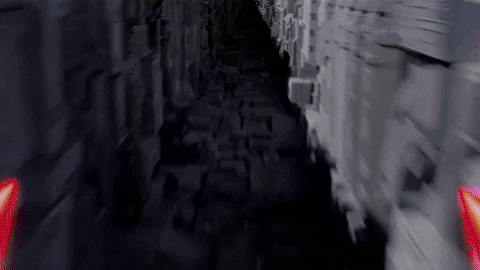
And fair is fair, Luke did explode a moon-sized military base full of millions of people and all that...
SO ANYWAY
Armamentism is an extremely serious issue, and it must be handled very, very carefully. As I mentioned before, RRR has a historical context, and an argument builded throughout the entire film; I hardly think anyone comes out of RRR, or WomanKing, wanting to pick up a gun and simply shoot someone (I hope). But the way this idea was presented in Black Adam, it is not an exaggeration to say that someone might have had this impression after watching it. At the very least, the movie took no care making sure this wasn't the case, and that for me is troubling enough.
The struggle against oppression and decolonialism are extremely important topics, and I am happy that these themes are increasingly making themselves present in more and more media works (and we have had several very good ones recently) – and Black Adam does have good ideas in the middle of the mess. But if you're going to make a film to talk about oppression, without actually commiting to approach it responsibly, why do it?
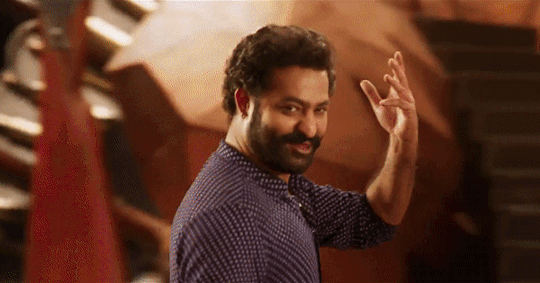
And ok, RRR does have a very imperative call to action but well, look at them, would you not answer???
#decolonialism#rrr movie#rrr#black adam#dc#dc universe#indian cinema#guerrilla I guess#star wars#andor series#andor#marx#marxism#killmonger#black panther#dwayne johnson#response of the opressed#racisim#movie essay#movie gifs#revolution#antifascism
150 notes
·
View notes
Text
week 2 update: "jalousie" research expanded into jealousy beyond the window (january 16, 2024)
[continuing on from my expanded thought on diving further into jealousy - more research and notes]
definition of jealousy: {merriam-webster} a jealous disposition, attitude, feeling --or-- zealous vengeance.
I wanted to find out what are most people jealous of, and found a forum on {quora}:
examples including:
wealth/economic wellbeing: not living paycheck to paycheck, driving luxury cars, being debt-free, can afford travel expenses
intelligence: able to grasp concepts/information quickly or have vast knowledge on a subject
social skills: people who are able to get anyone to like them, get members of the opposite sex interested/attracted, or have friends everywhere
happiness: people who are always happy, finding their purpose and enjoying life, bounce back and overcome failures and depression, overall good mental health
careers: having a top/high paying job in a recognized/respected career field (finance, business, health and medicine, engineering and tech, etc) or a job that leads to fame and success (actor, musician, professional athlete, model, etc)
health: people hardly/never effected by disease, never need to pay for devices like glasses and braces, speech therapy
looks: people with high metabolism that can eat whatever and still maintain a good figure, having clear skin, adhering to society's beauty standards
accomplishments: people who who have made a name for themselves in their chosen careers, making a notable impact on the world, winning awards (nobel prize, olympic medal, grand slams, oscars, etc)
reputation: people who have not done anything wrong, be a law abiding citizen, no criminal record, trustworthy, legend in sport or career, giving back to those in need, selflessness
talents: gifted musically, in art, in sport, in academics, in what they do, speaking multiple languages (polyglot)
next i wanted to tackle: what is jealousy? types of jealousy? how to spot feelings of jealousy? {verywellmind}
jealousy is a perceived threat to an interpersonal relationship
- accompanied by resentment, anger, hostility, inadequacy, bitterness that ranges in intensity
- if severe, irrational jealousy can lead to distrust, paranoia, abuse, or physical violence
characteristics of jealousy - how it can manifest in relationships
- acting obsessive, criticizing, fault finding, blaming, feeling distrust, being overprotective or suspicious, experiencing a quick temper, verbally abusing
health complications of jealousy
- stomach aches, headaches, chest pain, high blood pressure, palpitation in extreme anxiety, weight gain or loss, insomnia or sleep disturbance, poor appetite, weakened immunity
jealousy and mental health
- anxiety disorders, attachment issues, borderline personality disorder, depression, obsessive-compulsive disorder (OCD), paranoia, psychosis, schizophrenia
the six types of jealousy:
rational jealousy: when there is genuine, reasonable doubt, especially when you love a partner and fear losing them, rational jealousy can appear.
family jealousy: occurs between family, such as siblings. when a baby is born, a sibling may feel jealous as the attention of the parents shifts to the new baby.
pathological jealousy: irrational type of jealousy. unhealthy feelings may result from an underlying health disorder with signs including extreme insecurity and a desire to control or manipulate.
sexual jealousy: fear that a partner has been unfaithful and engaged in physical infidelity; you may become suspicious.
romantic jealousy: can result from a real or imagined threat to a romantic relationship, resulting in jealous thoughts or reactions.
power jealousy: stems from personal insecurity. jealous of someone who has what you want. when a coworker receives a promotion or reward that you wish to receive, you may become jealous.
looking into three prime reasons why people get jealous {psychology-today}:
1. insecurity: the most common source of jealousy
- inferiority complex - not a clinical term but an underlying impoverished ego or low self esteem
- not absolute in men and women
2. obsessive thinking
- thinking style, tendency to overthink and obsess about things inevitably
- for obsessive types the hardest thing to manage is uncertainty, can't tolerate the unknown
3. paranoid personality
- men and women with mild or moderate paranoia have great difficulty trusting others and often tend to ponder malicious intent to others' motives
- have a personality type that leads them to feel victimized and persecuted, feeling like people are out to get them; sabotage them, their goals, their career.
- perceive others have put them down, rejected them, or patronized them even when people tell them otherwise
- blaming others, assigning blame to others as opposed to reflecting snd taking accountability of their own flaws or mistakes
- get jealous and grasp to a strong belief and no amount of evidence could convince them otherwise
reality
- pattern of jealousy leads to a label/reputation as a jealous person
- instincts signaling you can't trust someone could label you the "jealous type"
causes of jealousy {verywellmind}:
insecure or poor self-image, fear abandonment or betrayal, intense possessiveness or desire for control, misguided sense of ownership over a partner, unrealistic relationship expectations, reliving a hurtful experience of abandonment in the past, worrying about losing someone or something important
treatment for jealousy and ways to cope {verywellmind}:
psychotherapy or medication to treat
confront your fears, address you expectations, practice gratitude, be open and honest, and practice mindfulness as ways to cope
pics of written notes to be converted to this post:
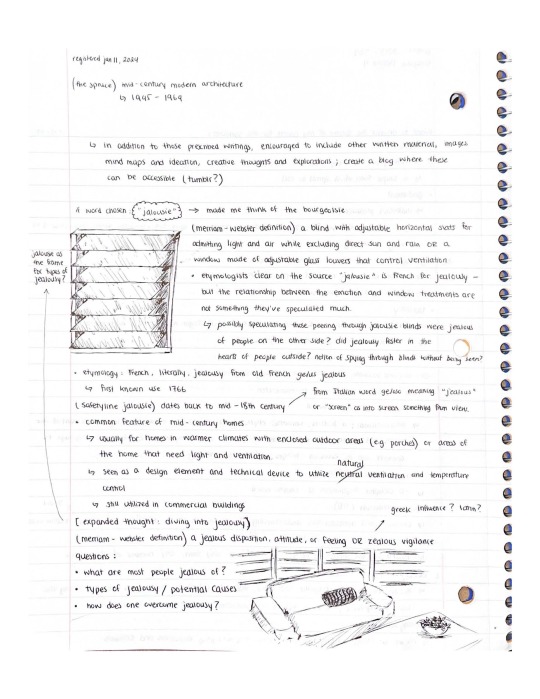


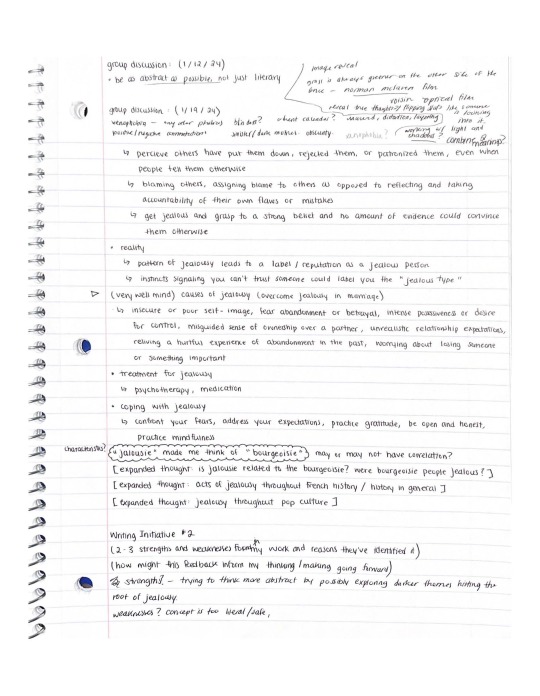
0 notes
Link
In a democracy, every vote is supposed to be equal. If about half the country supports one side and half the country supports another, you may expect major institutions to either be equally divided, or to try to stay politically neutral.
This is not what we find. If it takes a position on the hot button social issues around which our politics revolve, almost every major institution in America that is not explicitly conservative leans left. In a country where Republicans get around half the votes or something close to that in every election, why should this be the case?
This post started as an investigation into Woke Capital, one of the most important developments in the last decade or so of American politics. Although big business pressuring politicians is not new (the NFL moved the Super Bowl from Arizona over MLK day), the scope of the issues on which corporations feel the need to weigh in is certainly expanding, now including LGBT issues, abortion laws, voting rights, kneeling during the national anthem, and gun control.
…
As I started to research the topic, however, I realized there wasn’t much to explain. Asking why corporations are woke is like asking why Hispanics tend to have two arms, or why the Houston Rockets have increased their number of 3-point shots taken over the last few decades. All humans tend to have two arms, and all NBA teams shoot more 3-pointers than in the past, so focusing on one subset of the population that has the same characteristics as all others in the group misses the point.
I think one reason Woke Capital is getting so much attention is because we expect business to be more right-leaning, and corporations throwing in with the party of more taxes and regulation strikes us as odd. We are used to schools, non-profits, mainline religions, etc. taking liberal positions and feel like business should be different. But business is just being assimilated into a larger trend.
Corporations are woke, meaning left wing on social issues relative to the general population, because institutions are woke. So the question becomes why are institutions woke?
…
Through the lens of ordinal utility, in which people simply rank what they want to happen, we are about equal. I prefer Republicans to Democrats, while you have the opposite preference. But when we think in terms of cardinal utility – in layman’s terms, how bad people want something to happen – it’s no contest. You are going to be much more influential than me. Most people are relatively indifferent to politics and see it as a small part of their lives, yet a small percentage of the population takes it very seriously and makes it part of its identity. Those people will tend to punch above their weight in influence, and institutions will be more responsive to them.
Elections are a measure of ordinal preferences. As long as you care enough to vote, it doesn’t matter how much you care about the election outcome, as everyone’s voice is the same. But for everything else – who speaks up in a board meeting about whether a corporation should take a political position, who protests against a company taking a position one side or the other finds offensive, etc. – cardinal utility maters a lot. Only a small minority of the public ever bothers to try to influence a corporation, school, or non-profit to reflect certain values, whether from the inside or out.
In an evenly divided country, if one side simply cares more, it’s going to exert a disproportionate influence on all institutions, and be more likely to see its preferences enacted in the time between elections when most people aren’t paying much attention.
…
Here are two graphs that have been getting a lot of attention

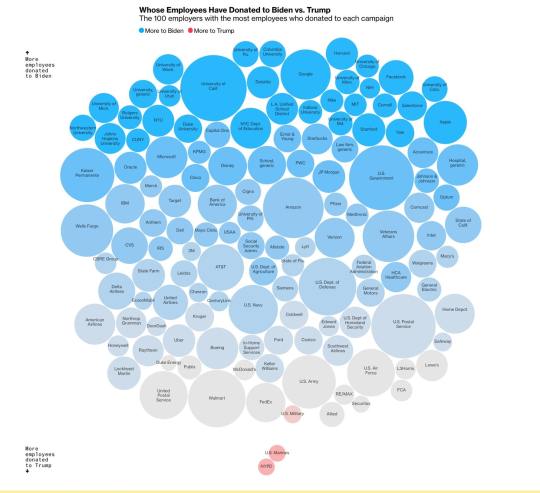
What jumps out to me in these figures is not only how left leaning large institutions are, but how the same is true for most professions. Whether you are looking by institution or by individuals, there are more donations to Biden than Trump. Yet Republicans get close to half the votes! Where are the Trump supporters? What these graphs reveal is a larger story, in which more people give to liberal causes and candidates than to conservative ones, even if Americans are about equally divided in which party they support (and no, this isn’t the result of liberals being wealthier, the connections between income and ideology or party are pretty weak). Here are some graphs from late October showing Biden having more individual donors than Trump in every battleground state.
…
In the 2012 election, Obama raised $234 million from small individual contributors, compared to $80 million for Romney, while also winning among large contributors.
…
In September 2009, at the height of the Tea Party movement, conservatives held the “Taxpayer March on Washington,” which drew something like 60,000-70,000 people, leading one newspaper to call it “the largest conservative protest ever to storm the Capitol.” Since that time, the annual anti-abortion March for Life rally in Washington has drawn massive crowds, with estimates for some years ranging widely from low six figures to mid-to-high six figures. March for Life is not to be confused with “March for Our Lives,” a pro-gun control rally that activists claim saw 800,000 people turn out in 2018. All these events were dwarfed by the Women’s March in opposition to Trump, which drew by one estimate “between 3,267,134 and 5,246,670 people in the United States (our best guess is 4,157,894). That translates into 1 percent to 1.6 percent of the U.S. population of 318,900,000 people (our best guess is 1.3 percent).” Even if the two left-wing academics who did this research are letting their bias infuse their work, there is no question that protesting is generally a left-wing activity, as conservatives themselves realize.
People who engage in protesting care more about politics than people who donate money, and people who donate money care more than people who simply vote. Imagine a pyramid with voters at the bottom and full-time activists on top, and as you move up the pyramid it gets much narrower and more left-wing. Multiple strands of evidence indicate this would basically be an accurate representation of society.
Another line of evidence showing that the left simply cares more about politics comes from Noah Carl, who has put together data showing liberals are in their personal lives more intolerant of conservatives than vice versa across numerous dimensions in the US and the UK. Those on the left are more likely to block someone on social media over their views, be upset if their child marries someone from the other side, and find it hard to be friends with or date someone they disagree with politically. Here are two graphs demonstrating the general point.
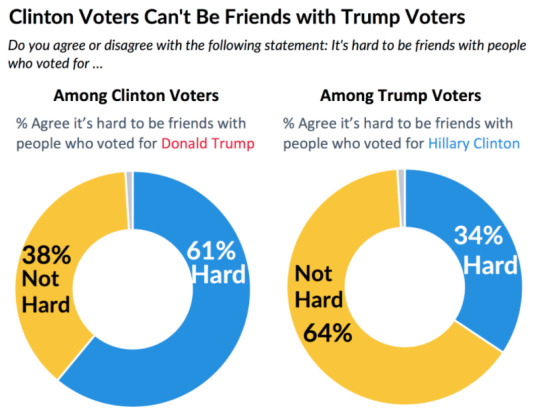

…
There’s a great irony here. Conservatives tend to be more skeptical of pure democracy, and believe in individuals coming together and forming civil society organizations away from government. Yet conservatives are extremely bad at gaining or maintaining control of institutions relative to liberals. It’s not because they are poorer or the party of the working class – again, I can’t stress enough how little economics predicts people’s political preferences – but because they are the party of those who simply care less about the future of their country.
Debates over voting rights make the opposite assumption, as conservatives tend to want more restrictions on voting, and liberals fewer, with National Review explicitly arguing against a purer form of democracy. Conservatives may be right that liberals are less likely to care enough to do basic things like bring a photo ID and correctly fill out a ballot. If this is true, Republicans are the party of people who care enough to vote when doing so is made slightly more difficult but not enough to do anything else, while Democrats are the party of both the most active and least active citizens. Yet while being the “care only enough to vote” party might be adequate for winning elections, the future belongs to those at the tail end of the distribution who really want to change the world.
The discussion here makes it hard to suggest reforms for conservatives. Do you want to give government more power over corporations? None of the regulators will be on your side. Leave corporations alone? Then you leave power to Woke Capital, though it must to a certain extent be disciplined and limited by the preferences of consumers. Start your own institutions? Good luck staffing them with competent people for normal NGO or media salaries, and if you’re not careful they’ll be captured by your enemies anyway, hence Conquest’s Second Law. And the media will be there every step of the way to declare any of your attempts at taking power to be pure fascism, and brush aside any resistance to your schemes as righteous anger, up to and including rioting and acts of violence.
…
From this perspective we might want to consider this passage from Scott Alexander, who writes the following in his review of a biography of Turkish president Recep Tayyip Erdogan.
The normal course of politics is various coalitions of elites and populace, each drawing from their own power bases. A normal political party, like a normal anything else, has elite leaders, analysts, propagandists, and managers, plus populace foot soldiers. Then there's an election, and sometimes our elites get in, and sometimes your elites get in, but getting a political party that's against the elites is really hard and usually the sort of thing that gets claimed rather than accomplished, because elites naturally rise to the top of everything.
But sometimes political parties can run on an explicitly anti-elite platform. In theory this sounds good - nobody wants to be elitist. In practice, this gets really nasty quickly. Democracy is a pure numbers game, so it's hard for the elites to control - the populace can genuinely seize the reins of a democracy if it really wants. But if that happens, the government will be arrayed against every other institution in the nation. Elites naturally rise to the top of everything - media, academia, culture - so all of those institutions will hate the new government and be hated by it in turn. Since all natural organic processes favor elites, if the government wants to win, it will have to destroy everything natural and organic - for example, shut down the regular media and replace it with a government-controlled media run by its supporters.
When elites use the government to promote elite culture, this usually looks like giving grants to the most promising up-and-coming artists recommended by the art schools themselves, and having the local art critics praise their taste and acumen. When the populace uses the government to promote popular culture against elite culture, this usually looks like some hamfisted attempt to designate some kind of "official" style based on what popular stereotypes think is "real art from back in the day when art was good", which every art school and art critic attacks as clueless Philistinism. Every artist in the country will make groundbreaking exciting new art criticizing the government's poor judgment, while the government desperately looks for a few technicians willing to take their money and make, I don't know, pretty landscape paintings or big neoclassical buildings.
The important point is that elite government can govern with a light touch, because everything naturally tends towards what they want and they just need to shepherd it along. But popular/anti-elite government has a strong tendency toward dictatorship, because it won't get what it wants without crushing every normal organic process. Thus the stereotype of the "right-wing strongman", who gets busy with the crushing.
So the idea of "right-wing populism" might invoke this general concept of somebody who, because they have made themselves the champion of the populace against the elites, will probably end up incentivized to crush all the organic processes of civil society, and yoke culture and academia to the will of government in a heavy-handed manner.
To put it in a different way, to steelman the populist position, democracy does not reflect the will of the citizenry, it reflects the will of an activist class, which is not representative of the general population. Populists, in order to bring institutions more in line with what the majority of the people want, need to rely on a more centralized and heavy-handed government. The strongman is liberation from elites, who aren’t the best citizens, but those with the most desire to control people’s lives, often to enforce their idiosyncratic belief system on the rest of the public, and also a liberation from having to become like elites in order to fight them, so conservatives don’t have to give up on things like hobbies and starting families and devote their lives to activism.
54 notes
·
View notes
Note
Do you have any advice for self-care to use specifically when you are angry and frustrated by torture apologia? Or even more so when being dismissed when confronting others because they think you are not smart, too emotional, not having enough applicable background, etc. I wanted to keep this general. I know you posted about taking breaks and keeping up your mental health but I could not find anything about ways to deal with anger that don’t involve confronting others, especially if it is culturally frowned upon. Thank you for your hard work with this blog.
Well duck, I uh mostly deal with anger by running this blog.
I’m honestly not sure that I deal with anger well. I try and I’m working on it but I know I struggle to stay calm and polite when something infuriates me. I’m also a lot better at communicating in a helpful, patient and articulate fashion in writing then I am in person.
Keep in mind that you do not have to have these conversations every time someone is spouting torture apologia.
Spreading awareness is great! Educating others is great!
But (and I really can not stress this enough) it is not your job to correct everyone. It is not your job to ‘fix’ people. It is not your job to persuade others they should care.
Pick your battles. Engage with people who you think you can have a genuine conversation with. Remember that when you’re talking politics (and torture is political) then the aim is not to convert the people on the extreme ends: it’s to persuade the people who are on the fence.
And if you really want to engage with people engage about the things they care about. If you’re talking to someone who believes in law and order or justice as retribution then talk about how torture puts police at risk and how it leads to innocent people landing in jail. If you’re talking to people who are concerned with safety in their neighbourhoods talk about how torture can serve as a recruiting factor for extremist groups and gangs. If they’re concerned about public health and the treatment of the mentally ill talk about how torture causes life long health problems and how that takes away from the economy.
Aim at the level where people are willing to engage with you.
If people take issue with your level of education or subject and question how you can know this stuff; act like an academic would. Cite your sources.
‘Well Rejali who studied this for years and created one of the most detailed analysis of global torture we have-’ ‘O’Mara, who studies the brain and how trauma impacts it,’ ‘Morgan, who put US marines through a mock interrogation with mild levels of stress and found-’ ‘Shalev who studies solitary confinement-’ ‘Sironi who is a psychologist and has interviewed hundreds of torturers-’ ‘Kara who produced the largest data base of interviews with modern slaves-’
Repressing your anger, tapping it down, is not a good idea. As with most negative emotions it’s healthier to let yourself feel them and work through them.
It’s also important to recognise that while there are real reasons for your feelings you can not always do anything about them. And there comes a point where you have to deal with that. The things that anger us and hurt us are not always things we can actually personally effect. Changing public opinion takes decades and is the work of thousands of people, not one individual.
I feel like those of us who are not from the West have a bit of an advantage here, because sitting with that anger and learning when and how to put it aside is something you grow up with.
Having support helps a lot. Having people you can talk to about this stuff is incredibly important. And I am so grateful to all of the people I know who support me in this: the court journalists, philosophers, writers and researchers who I can discuss this with. I also get a lot from reading about the successes around the world, modern or historical. They’re out there.
Martial arts have also helped me a lot over the years. Capoeira helped me a lot but given the pandemic it isn’t a great idea right now. But a pair of boxing pads and a willing house mate are definitely a good way to get out some anger. Thumb on the outside of your fist, never inside your fingers. Keep it close to your body, fist at your hip, thumb upwards. Twist as you punch so your thumb faces down as you connect with the pad. Make sure to move your hips.
Don’t do what I did at uni and try to use a pillow instead of proper pads. You’ll end up bruised.
Right now, without a decent capoeira group and a lockdown in place, I do push ups.
If you have a garden dig. Plant young trees, if you’re in the northern hemisphere (it’s the wrong time in the southern hemisphere.) Dig a vegetable patch. Make an area of wild flowers by cutting and tearing out the grass, raking the ground and scattering native plant seeds in the mud.
Take all the electric whisks out of the kitchen and make a cake. Cream the butter until it feels like your arm will fall off.
Make a curry from scratch without a blender. I use a granite pestle and mortar and it takes several batches and several hours to grind a proper paste. I’m a big fan of Matar Paneer and it freezes well giving some tasty work lunches for a week or so.
Make bread. I’m not very good at this but the kneading, layering and mixing all take a lot of work. Which can be a very good outlet. I wish I could give you a paratha recipe but the truth is my skill level is no where near high enough to attempt the best breads. (I buy mine frozen.)
The advantage I’ve found from all of these outlets is they’re constructive. Boxing and push ups will make you stronger, whatever skill level you start at. Gardening will give you fruit, vegetables or wonderful flowers in a few months time. It’ll give you new knowledge of plants. Cooking any of the things I’ve suggested will give you wonderful food and more skills.
I always try to find something constructive to do with my anger. I think there’s a tendency to portray anger as bad in and of itself rather then having a conversation about how we act on our anger.
I also can’t stress enough how writing can help. Fiction is an excellent way to process our feelings and express why we feel the way we do.
The piece of fanfiction I’m currently writing has one of the characters dealing with a traumatic brain injury. Writing this character struggling to communicate what he’s going through and trying to come to terms with his limits while the people around him are looking at him and saying ‘well you don’t look disabled-’ It’s helped me process a lot of my anger over how I’m treated because of my mental health problems and the dumb, unnecessary barriers that make my life more difficult.
What’s the root of the anger here? When you know that, you can address it with words. You can construct a story that will explore it. You can see it through the lense of different characters. And that really helps process it.
I hope that helps :)
Available on Wordpress.
Disclaimer
#writing advice#tw torture#torture apologia#tackling torture apologia#mental health#research#anger#dealing with anger
65 notes
·
View notes
Text
So you guys are never going to guess what I just did.
I might possibly be writing a tww fic (FOR REAL THIS TIME I PROMISE) and I just finished the first little snippet so I thought I’d share that with y’all!
It’s going to be several chapters, each one from the POV of a different senior staff member, basically just a random collection of scenes where everyone Works Out their Issues. Official summary= The senior staff + Donna think about the past, how far they’ve come, heartbreak, hard times, sleep deprivation, and what family means to them over a ginormous bowl of popcorn.
(Part backstory headcanons, part character study, part found family, part random other shit?? I have no clue where this came from tbh. Anyway enjoy this rambly dumpster fire) (the popcorn is figurative)
Part one is Sam, and I’m sure none of you are surprised 😋 Enjoy!!!!
~~~~~~~~~~~~~~~~
When Samuel Norman Seaborn was a kid, ‘I want to be a lawyer when I grow up’ was one thought that didn’t cross his mind, not even once. Which is saying something, because little Sam had a lot of thoughts. He had opinions about everything, even things he didn’t understand (especially those) and he had ideas, big ideas that everyone said were going to change the world one day, and he had an imagination the size of the Chrysler building and not enough room in his head for all the stories he wanted to tell. Everyone liked Sam. He was easy to like. At least, until he got a little older and suddenly his imagination was distracting instead of endearing and his ideas were silly instead of helpful and the big books he liked to read were taking time away from more important things. It didn’t make sense to him, because he had always thought they were the most important things in the world, but one day when one too many teachers had commented on it and one too many other children had teased him for it, he sat himself down at his desk and told himself he wouldn’t be like that anymore. Sam decided he wouldn’t be the dreamy one with his head in the clouds anymore. He would be focused, and dedicated, the model student and son.
So somewhere in middle school, Sam Seaborn changed from the cheerful, somewhat dazed and forgetful child he had been into the most intensely focused little academic his teachers had ever seen. Focusing was usually...hard, for Sam. At least, focusing on the right thing. His mind wanted to go in so many different directions and think about so many different things, and none of them were what he should have been focusing on. But he found that if he worked really hard and forced himself to think about one specific thing, then he could usually achieve it. Homework and such wasn’t exactly what he was passionate about, but it was what his parents wanted, and what everyone else around him seemed to want, so he did his best.
He worked hard through high school and when he graduated, he got accepted to Princeton. Sam loved Princeton. He loved everything about it. He started working hard because he liked it, and not because he thought other people wanted him to. He worked towards his law degree, and he got it.
(He never did stop writing, though. It was like a disease. No matter where he was or what he should have been doing, he could never make himself not write.)
There was a bit of a gray area after that, and more than one bad decision, but then he got the job at Gage-Whitney. And Gage-Whitney was...well. He was good at it. It paid well. He kept working his way up the ladder until he made partner, and wasn’t that everyone’s dream? Shouldn’t he love his job? Maybe he should have. He didn’t.
Then there was Lisa, and he couldn’t decide if she had been a mistake or not. He had liked her an awful lot; even loved her. She had been quite fond of him too. It had been real. Once. He remembered nice dinners and radiant smiles and the joy of having a partner who was as smart as you.
God, what happened to us? He’d think sometimes, but it was stupid, because he knew exactly what had happened to them. Sam had quit his job and gone running off to New Hampshire with Joshua Lyman. He’d tried to build a presidential campaign from scratch, then actually managed to accomplish it, which was somehow even worse for their relationship because then he was zipping all over the country without a minute to spare and he told himself he called whenever he could but it wasn’t enough and he knew it. Whenever they did get to see each other, there was a...distance, that there never had been before. Eventually Lisa would say something passive aggressive about how apparently Josh Lyman meant more to him than she did, and Sam would get defensive and mutter something about how he never complained when she always went off to fancy bars with her fancy friends every other night, and she would bark out an incredulous laugh because of course he would find a way to insult her friends when he was the one who had left her in the dust, because wasn’t that just the kind of person he was!
It hurt even more because they cared, they both cared. A lot. But in the end, it didn’t matter, because Sam chose the campaign and she chose to stay and there was nothing they could say to change each other’s minds. Her eyes had gotten big and wet and angry, and he had been numb, staring out at nothing. That was the night she gave him back the ring.
But he tried not to think about it too much now. It was a sure-fire way to ruin his day. Or week, more likely.
“Did you know that supposedly the shortest telegram correspondence in history was between Victor Hugo and his literary agent?” he asked. He was sitting at one of the desks in the bullpen, hunched over some files that he really didn’t want to read. It was one of those days, where there was a lot to do but a lot of time to do it, so you ended up doing anything but what you were supposed to do. One of those days that felt lazy and slow when it shouldn’t have been.
Josh was leaning against an office door frame across from him. “Really.”
“Yeah.” he flipped through some of the papers absently. “To ask how the book sales were doing he just sent a question mark. The guy sent back an exclamation point. And all I’m saying is if Victor Hugo himself could restrain his verbosity like that, then just maybe the guys writing these files could-” he paused as Josh wandered over, resting his forehead against the back of Sam’s head and wrapping an arm around him from behind. “What?” Sam asked.
“Nothing.” Josh chuckled. “You’re just a huge dork.”
“Oh.” He rolled his eyes. “Just part of my charm, I guess.”
“In that case, you are extremely charming.”
“Ha ha.” Sam looked over as Josh slid into the desk chair next to him. “Hey, did CJ say how the briefing went? I was on the Hill all morning.”
Josh shrugged. “It was fine. They were all just asking about whether Jancowitz was going to sink the healthcare bill with his insistence on antagonizing what’s-his-name at the DOD.”
“Ah. Should we send someone to smooth that over?”
“Yeah, you can put Ainsley on it. I’m not too worried.” A problem for another day, then. Josh leaned back in his chair, putting his feet up on the desk in front of him. “It’s supposed to keep snowing all night.”
“They said that the last two times it snowed.”
“I think they’re right this time!” Josh protested, tapping the side of his head. “It’s my flawless intuition as an outdoorsman.”
Sam laughed. “At this rate, we could put you on the Weather Channel. You’d be just as accurate as all of those guys.”
“Mmm. With their track record, I could be their boss by next Tuesday.” He squinted at something for a minute before hopping up. “Well, I should probably go work on my thing before Leo has an aneurysm. I’ll come see you later about the environment?”
“Yeah, see you.” He sighed, staring down at the papers while Josh went back to his office. After a minute, he just shook his head and stood up, gathering them in his hands and retreating into his own office. Sam unceremoniously dumped the files onto a shelf, settling into his desk chair. They could be read another day.
Straightening his glasses, he popped open his laptop on the desk in front of him. He tried typing out some remarks for the President’s conference next week, but didn’t get very far. He wandered over to his email, and replied to a few people who had asked him questions.
I should write my dad, he thought absently. It had been a while since his last email. The thing was, thinking about his father in any capacity was Sure-fire Way To Ruin His Week Number Two.
It was...complicated. Sam had never had the best relationship with either of his parents to begin with. They had always been busy, and now he was always busy, and he supposed that it was possible he had lost far too many important things in his life due to people being busy. It didn’t even sound like a good excuse.
His mother was a brilliant, industrious woman who had grown up poor and worked so hard to get their little family off the ground that there was little else left of her now. At least, that was how he’d always felt. She’d always been so caught up in working to secure his future, and seemed to not have time for him in the meantime. Oh, she had tried, but she was always on a phone call or an extra shift and so it had usually just been him and his dad at the house when he was little.
It made his blood boil to think about it too long. Sam had never been close with his mother, but she had worked so hard and given up so much to keep them afloat. And this was how his father had repaid her? By...by...he couldn’t even put it into words. Learning about his father’s mistress had shook him to his core, and hadn’t stopped shaking it since.
Family had never been a very comforting concept to Sam, and after that particular revelation, even the romanticized ideal of it had come crumbling down around him. Family wasn’t supposed to be built on lies and absence and forced smiles. It was supposed to be solid and warm and loving, not shaky and volatile and brimming with hurt.
He could feel his heart clenching with anger and bitterness and grief over what-could-have-beens, and Sam hated being that person. Instead, he stared at the blank white void of the email draft in front of him, forcing himself to breathe deep. What are the others doing right now? he asked himself, his mind latching onto a distraction. Josh was probably working himself up over the environment issue- that, or getting lovingly screamed at by Leo. CJ had just finished a briefing, and was probably high-fiving Carol or bickering with Danny. Toby was most likely scribbling notes for the energy conference, half of which would be crumpled up in the wastebasket by now. Or on fire. Sam smiled to himself, rubbing at the back of his neck.
“Hey,” came a cheery voice, and Sam looked up to find Donna in the doorway with a file tucked under her arm. “Any important government business going on in here?”
“Absolutely not,” he assured her, leaning back in his chair. “You need me for something?”
“Nothing pressing,” she replied with a shrug, brushing forward and hopping on top of his desk like she always did. “Toby and Josh are in CJ’s office watching the game if you want to join. ”
“Don’t they have work to do?” he mumbled petulantly.
“I really wouldn’t know,” Donna said with exaggerated innocence. She smirked at him. “But you look so sad and lonely in here, the least I could do was extend the invitation.”
“Hush, you,” Sam lamented, stretching absently. He looked down at his laptop and tapped his fingers on the desk. “I really should be working.”
“So should everyone else,” Donna pointed out. She slid off the desk and crossed her arms, giving him a look. “Sam? Hey, are you feeling okay? You look a little…”
Sam frowned, looking down at himself. “Disheveled?” he suggested, noting his wrinkled shirt and crooked tie.
“Ah,” she said with a nod. “That’s the word I was looking for. But, hey, are you really alright?” She leaned down to rub his shoulder. “You seem gloomy.”
“Yeah,” he replied, sighing. “Just a long day, I guess.”
Donna raised her eyebrows. “And do you know what the perfect antidote for a long day is?”
“Watching the game with Josh and Toby and CJ?” he guessed.
“Exactly!” Donna smiled, bonking him on the head with her file. “See you in five?”
Sam looked back at his email, thinking. If he mustered up the sheer willpower to write to his dad, he would have no idea what to say. And it wasn’t like his relatives in California were truly family, anyway. Not if all he associated with them were pain and disappointment. Maybe he could leave this email for later. Maybe he could watch football with his friends and chuckle at Toby and Josh shouting at the TV and rib CJ when she didn’t understand anything that was happening and forget about all of it, for a little while.
“Yeah,” Sam said, closing the lid to his computer. “Yeah, I’m coming.”
#tww#the west wing#west wing#sam seaborn#josh lyman#donna moss#tww fic#first time writing for tww so be nice pls#featuring: literally no plot#also featuring: me straight up making up things that sound government-y and official#also featuring: lots of platonic friendship moments#when you watched a scene in the show and thought#this would have been a perfect place for them to hug and/or touch foreheads etc etc#BUT THEY DONT!!! it’s maddening#so i write them myself<3#anyway enjoy ~2k of extremely self indulgent sam character meta
27 notes
·
View notes
Text
Hannibal Costumes in the Musical
I've received a couple of anonymous asks regarding the costuming in Hannibal, in response to one of the aims of this initiative being to determine how to make sure they're removed from the production.
The questions are:
a) Which costumes in Hannibal are problematic/offensive, and
b) Are the costumes still being used?
Which costumes?
There are three costumes I would identify as problematic. The first, and most discussed one, is the costume usually worn by the one or two actors who bring in the elephant at the climax of the Hannibal rehearsal. For the purposes of this post, I'm going to identify the costume and role as the 'Elephant Handler', as the commonly used and credited name of the role has been used as a slur before. In the 25th anniversary at the RAH recording, the elephant is omitted but several actors in the costume still make an appearance near the end.
The Elephant Handler actors wear a brown or dark coloured baclava, and dark, sometimes skintight clothing sometimes matching the colour of the baclava on their arms. The rest of the costume sometimes involves 'fur skins' or animal print, and layered colourful scraps of cloth. They are somewhat hard to see, usually standing upstage (near the back), and one's eyes usually are drawn to the main cast, or, you know, the elephant being brought in. Recordings often do not focus on the back, and can be blurry as well, which may explain how the actors could be easily missed.
In short, the Elephant Handler costume is blackface, and a racist caricature. Why does it exist? People often speculate that it's used as a commentary and/or parody of racist productions that occurred in the 19th century. A more cynical assumption might also be that it was to portray such questionably 'accurate' productions of the time, without the intent to lampoon. Any commentary intended is not exactly obvious.
Hopefully, the description of the costume is on its face enough for the average person to conclude that it should be removed from the musical. It's essentially a variation of Poe's law at work (i.e. "without a clear indicator of [...] intent, it is impossible to create a parody of extreme views so obviously exaggerated that it cannot be mistaken by some [...] for a sincere expression of the views being parodied." It is perpetuating racist imagery, and for what reason?
The sight of the costumes may be enough to harm viewers/audience members on their own. It also likely has the distinct effect of making actors of colour feel unwelcome, which then creates a further vicious feedback loop of actors of colour not being cast. It certainly angers and shames me, and makes me hesitate to share the show with others.
The other two costumes, perhaps less overt, are commonly referred/credited as the Lion Man and the Wild Woman. The former is usually an actor in 'fur skins' or animal print who is often crouching/groveling and striking grimaces. The latter are actors wearing wigs of textured hair. There are usually several of each in the Hannibal rehearsal. Again, it's impossible to confirm intention, but I would hazard that it's to connote the 'barbaric' and 'exotic' nature of Carthage, common inaccurate tropes of the city and Phoenician civilization.
Are the costumes still being used?
Yes, the costumes are still used in all replica productions, including on Broadway and the West End. I haven't seen the production in person for a while, so this is based on combing through some recordings made within the last five years.
Copenhagen (2019)'s Elephant Handlers don't appear to be wearing balaclavas; the Brazil revival (also 2019) do. Notably, the Elephant Handler costume is not in the restaged production (nor is the elephant). The Lion Man and Wild Women still make appearances, however.
Should all these costumes be changed/be removed?
I would say so. Definitely the Elephant Handler, I hope you'd agree. It would take very little to revise the other two as well. Certainly, there have already been many interesting non-replica alternatives used in lieu of each. Or, they could draw from historical accounts of Carthaginian dress as well. The sky's the limit here.
Is it blackface if they're wearing balaclavas and not painting their faces?
Yes. It continues to be derogatory and a racist caricature.
Do we have a hope of a chance in getting this changed even though Cameron Mackintosh doesn't seem to care about fan outcry?
Given that the issue is not "fans are dissatisfied" but "this is racist and offensive," yes. Specifically, I would wager that it would generate more public outrage and therefore spur change. It's somewhat surprising that the costumes and the musical at large hasn't been blasted publicly for this already.
And cynically, this doesn't cost Mackintosh much of anything, so I can see it just making financial sense to him as well.
Regardless of success, that an initiative to bring about positive change might not work doesn't mean that it's not worth it to try. That, too, I hope you'd agree.
Links
I'm not an academic and the degree and depth of research many phans conduct are seriously quite impressive and beyond my skills. These links are definitely not that; they were articles I found interesting and/or feel like may be helpful as a springboard.
Vox, writer Jenée Desmond-Harris on the offensive nature of blackface
NPR, a short podcast clip featuring Gene Demby, with transcription, about blackface and intent
World History Encyclopedia article on Phoenicia (ancient Carthage was a city/settlement of)
World History Encyclopedia article on Hannibal’s struggles during the Second Punic War (which the POTO play within a play is about)
Phoenicia.org article on Phoenician Dress (and the most 90s design for a website that I've seen in a while)
36 notes
·
View notes
Note
ok my friends and I cant seem to agree on this so im bringing it to you. who are the dean-coded, cas-coded and sam-coded characters in trc??
oh VERY interesting question. i have discussed this a little with @countryboycas but my brain is a little offline today and i think it’s hard to get a 1:1 coding in place in any case, because different aspects of tfw fit different trc characters?? but here’s my tentative breakdown:
ronan is, largely, dean-coded, on account of: extreme loyalty; idolises his absent, piece of shit father; has a soft, luminous, sanctified (and largely not-real) mother figure; anger issues that manifest in physical outbursts; secretly a softie with a huge weakness for kids; carries a lot of self-loathing; not academically-inclined/high school dropout, but still very clever and great at picking up practical skills (hc: most likely has adhd); will self-sacrifice at the drop of a hat.
however, when it comes to his relationship with declan, then ronan can be sam-coded, in the sense that he is the Rebellious Baby with a Mysterious Power that is super similar to his father (like sam is to john) and that declan, the Dutiful Son, has to protect
which means that declan has his own brand of dean-coding, as in: repressed to all hell; essentially buried his personality so deep under a façade that very few people get to see it; got overburdened with responsibility at an incredibly young age; yet despite doing everything his father asked, he was Not the Favorite
adam, to me, is mostly sam-coded: he’s stubborn, very clever, and academically inclined; he too grew up under an abusive piece of shit father, but instead of idolising him, he plans to leave and never come back by going to a prestigious university; despite being deeply “not-normal” he still tries to fit in by pursuing a traditional career (like sam with law studies), so he can build a safe life for himself; presents on the surface like the more rational/even-tempered between him and dean, but actually has mountains of repressed anger as well, and thinks of himself as not good enough/unclean all the time. PLUS!!! psychic powers babey!!
blue is jo-coded because jo is essentially dean, and blue is “the same impossible stuff” as ronan, who as established is dean-coded; additionally, blue has a sort of mixed rivalry/reverence for ronan right from the start, and is stated as wanting to impress him. they both fill the “Smol Girl™️ who can and will kick your ass if you underestimate her” role (and they both deserved a better narrative)
gansey is bobby-coded on account of: is not adam and ronan’s dad but he still appointed himself as the Parent Figure (i’m SORRY akfdlg that’s. all i got. i’m not even doing henry and noah because i don’t think we know enough about them to properly code them)
oh wait shit i did just compare adam and ronan to sam and dean so real quick--
w*ncesties don’t even THINK about interacting it’s about the characters not how they relate to each other 🙃
36 notes
·
View notes
Note
Can you give examples of emotional regulation issues? I discovered recently that I'm autistic but I'm still learning how to name things and what I have and what I don't have. Thank you very much, I adore your blog xxx
Awww, you’re so welcome!
Okay so I tried to find a good article that explains emotional regulation (also called emotional dyregulation) in simple terms, but all I could find was extremely academic stuff.
Basically, emotional dysregulation means a person’s emotions are “too big” or “over-reactive” to the situation.
I’ll use my own life as an example. This is perfect because it JUST happened to me literally yesterday (part of why I wasn’t posting yesterday).
So at work, I have been fighting against my manager for months to make her give me the accommodations that my job has promised, in paperwork, to give me. She has to give me these accommodations whether she likes it or not, it’s not only the law in my country (the US, the ADA act), but it’s also the policy of my job.
However she’s being extremely resistant, and so I’ve had to call HR into the situation and they’ve had talks with her and now she has set up a meeting with me, just me and her (this is all virtual because of Covid).
I’m not good at verbal communication- either listening to it OR speaking it- because...duh duh duh... I’m autistic. SO, I asked one of the HR people if she would be in the meeting with me and my manager to advocate for me.
She wrote back “I am not your advocate, but I will attend the meeting to answer any questions your or your manager may have.”
And I totally flipped out. I mean, I utterly lost my shit. I felt so betrayed and so abandoned and so hopeless that I was sobbing uncontrollably, screaming at the monitor, hyperventalating, absolutely unable to function, forget doing work. I basically became a useless human being for three hours because this lady, who is supposed to be helping me, said she wouldn’t.
I had therapy right after that (like, I was still crying when my therapist logged on), so I talked to my therapist about it, and she said,
“I think this is your emotional dysregulation, because your reaction seems out of proportion to the situation.”
and I said “NO, it’s not, she said she wouldn’t help me, she said she’s not my advocate, I’ve been fighting and fighting for months and I’m totally on my own...!”
and she said “I didn’t say there wasn’t a justification for you to feel negative emotions. Your job is not treating you correctly, so of course you should feel frustrated and angry. On a scale of 1 to 10, how angry are you?”
And I said “Five thousand.”
Then she said, “Is anyone you love dead, injured, or in danger?” and I said “No”
Then she said “Are you injured or in danger? Is your safety at risk?” and I said “No.”
Then she said, “So those situations are a “level 10″ anger situations, which means healthy emotions for this situation would be lower than a 10.”
And I said “You mean like a 9?”
and she said “I mean like a 4. It’s appropriate to feel frustrated. It’s appropriate to feel angry. You’re being mistreated, these are appropriate feelings. But you’re so upset that you can’t function, which is out of proportion to the situation.”
and I said “Oh.”
(and that’s why I’m in therapy, lol).
So that is a real-life example of emotional dysregulation, from my own life. After I had calmed down, my therapist explained to me that the HR lady didn’t even say “I won’t help you”, all she was doing was a “clarification of terms”. She explained that “advocate” has legal connotations, and so she wanted to make sure it was clear she wasn’t doing that- but she would still help me. She was attending the meeting and she was going to help me talk to my manager. But I couldn’t even see that because all I saw in her message was the “No” part.
Now this doesn’t mean non-autistic people don’t have overreactions. This example, on it’s own, could happen to anyone. Allistics have overreactions all the time, too. It’s part of being human.
And neurodiverse allistics- such as people with emotional disorders- can have this type of reaction too. So having feelings that are Too Big is a symptom shared by many neurodiversities. But autism is one of them!
For me, my overreactions are consistent, to everything. My feelings are just Too Big, very frequently- a huge amount of the time- to the point where my emotions become overwhelming and I have a meltdown, because of emotional overwhelm. This part of it is autistic.
I hope I explained this well. If you are still unsure, I do encourage you to google “emotional dysregulation” and “emotional regulation”. There’s a lot of good material out there, but as I said, a lot of it is very academic and heavy to read.
178 notes
·
View notes
Text
my hero academia profiles
to help with writing


navigation <- masterlist found here
[ sfw ] just a simple guide to the main characters i will be writing about in the my hero academia universe.
notes: feel free to use this and freshen up on the characters! i mainly made this because with so many characters i sometimes forget what traits go with which characters.
there may be spoilers. please proceed with caution. based on the mha anime.

My Hero Academia
Izuku Midoriya - "One For All". Izuku, also known as Deku is a timid, polite and reserved boy. Due to his quirckless childhood, Izuku is seen as insecure, vulnerable and quite tearful. Over the course of the anime, Izuku becomes more confident and brave. As time goes on, his hero duty shapes Izuku into a great leader and combines with his passion and strategic thinking, which allows Izuku to be greatly admired. Izuku is diligent, strong-willed and extremely enthusiastic. Izuku is emotional and carrying. He doesn't hesitate to help those who are in need or trouble even if he knows that he is not qualified or he might be putting his life in danger. Izuku is very uplifting and is quick to encourage and lecture the people around him.
Shoto Todoroki - "Half Cold, Half Hot". Due to Shoto's abusive upbringing, Todoroki first comes off as cold and aloof. Shoto prefers to keep to himself rather than hang out with other people. However, after the U.A Sports Festival, it is seen that Shoto is kinder, more humorous and seen to smile more. Gradually you can see Shoto being more sociable and open. Shoto is usually quiet and reserved but does have a bit of arrogance in him. Shoto seems to prefer working alone. He is calm and composed yet he is also not afraid to let loose in battle. Shoto is well-grounded with great ethics of heroism. Shoto does hold grudges and this can be seen as Shoto used to refuse to use his fire powers. (If you watched the anime or read the manga, you know why.)
Katsuki Bakugo - "Explosion". Two words: anger issues. He is crude, short-tempered, arrogant and aggressive. People see Bakugo as unheroic and can be downright villainous. He also has a problematic attitude. As the series goes on you can tell he becomes a less antagonistic character. He is also seen as a hostile person when he is with people he believes could be stronger. He is very determined to win all his matches and he can be seen to wear an eerily smile on his face in the middle of a battle. He is very talented at fighting and has a very strong academic side as well. He is capable of strategic thinking, improvision and battle planning. Due to the constant praise Katsuki receives, he has developed a superiority complex. He is extremely prideful and prefers to work alone.
Ochako Uraraka - "Zero Gravity". She is described as bubbly and sometimes airheaded by her classmates making her the "most laid back" girl in their class. She is often very blunt although she does not realize it. She is very warm and Ochako is very lively. She is friendly, empathetic and tries to be as positive as possible. Ochako is also very good at reading people and understanding the situation. She is on good terms with many people and has seen to have many close friends in her class. Despite her ditzy personality, she is very determined, somewhat intimidating and focused. When in this state, she is not above making rash and rushed decisions. She also hates being underestimated by her peers.
Eijiro Kirishima - "Hardening". He is outgoing and boisterous. He loves explaining things as "manly" or "unmanly". He is determined, selfless and brave. He would easily put his life on the line to help those around him. Eijiro is selfless, honest, kindhearted and straightforward. He lives without regret. He is loyal and dedicated to his friends. He is also willing to break rules and laws to help people. He is very hard on himself and has a strong sense of responsibility. He is also always thinking of ways to improve. Said many times by himself, he does not think very highly of his hardening ability as it isn't "flashy".
Denki Kaminari - “Electricity”. He is a nice, friendly, social and energetic boy. He is very casual around people. He can be blunt and reckless at times. He is very flirtatious to the girls in his class and he sometimes accompanies Minoru Mineta in his perverted schemes. He is a jokester and loves goofing around. He loves making jokes and getting the people around him to laugh and giggle. He also loves to tease his friends. He loves cool and trendy things so his choices are often influenced by what is popular. He is not very academically smart and often neglects his academic responsibilities. He gives off the impression that he is foolish and stupid but in reality, he knows many things in certain categories. Goes "dummy" for a few minutes after overusing his Quirk.
Shōta Aizawa - "Erase Powers". Aizawa is a school teacher at U.A. Shota is a very reserved and stern person. His decisions are based on knowledge and logic. He doesn't usually keep up with appearances and finds it unnecessary to filter his words. He comes off as cold, impatient and apathetic. He exerts little energy and effort into most situations. As a school teacher, he has very high expectations from his students and expects their best efforts. He is unafraid to express his feelings and he is very vocal. Despite the above, he does greatly care about his students.
Tenya Ida - “Engine”. Tenya is an intelligent, sophisticated, earnest, disciplined and noble person. At first glance, people assume he is intimidating, unfriendly and severe. Tenya takes everything seriously and is known for jumping to conclusions. Tenya is a great leader and has the respect of many of his classmates. He is very humble, willing to admit his mistakes, likes to improve himself and apologizes for any unexpected rudeness.
Momo Yaoyorozu - “Creation”. Momo is a natural-born leader who is very prudent and dedicated. She is calm and level-headed when in dangerous situations. Momo is blunt with commands, comments and pointing out other people's mistakes. She is very willing to help others out and help them improve. She is also very sensitive and innocent. At one point she loses her self-confidence but with a few encouragements and a successful victory she is able to regain it. When she is with people she is very eager and upbeat.
Neito Monoma - “Copy”. The easiest way to describe him: little jealous bitch boy. Jkjk, I love him don’t worry. From what we know about Neito, he is very loud, vocal, sarcastic and mocking. He is often seen as annoying obnoxious because he is so competitive/passive-aggressive to class 1-A. Despite this, he proves to be a strategic thinker, smart and competent. He appears to have a superiority complex. He feels threatened by class 1-A which is why he puts on a narcissistic and smug front.
Tamaki Amajiki - “Manifest”. He is a third-year student at U.A. He is quiet, reserved, introverted and very pessimistic. He can come off as shy, aloof and sometimes “intimidating” due to his depressed nature. He gets easily nervous when he is talking to other people. Whenever he is anxious or if he feels embarrassed he will oftentimes face a wall and hide his face. Despite this, Tamaki does show flashes of braveness.
Keigo Takami - "Fierce Wings." Keigo Takami also known as Hawks is a very intelligent man. Both logistically and emotionally. He has a carefree and jovial personality. Hawks is laid back but always on alert most times. Hawks dislikes formality and often likes to act in an unpredictable way. He is cocky, nonchalant and sarcastic. because Hawks doesn't care about his social status he likes to be jokingly submissive. He is very talkative around the people he likes and makes casual conversation when in battle. His actions and gestures are lively, highly personalized and expressive. He is very hardworking due to his career path and is constantly under pressure.
Hitoshi Shinso - "Brainwashing." Shinso is a straightforward and stoic person. He is good at starting conversations dispite being reserved and quiet. He is known to be quite clever, easily using his words to get people to answer him. Because of his "villainous" quirk, Shinso is somewhat feared by the people around him. Due to this he is shown to be resentful to the people he thinks who have quirks that are more "heroic". Despite all this, Shinso is determined to become a Pro Hero.

more to come..
9 notes
·
View notes
Link
These women have dedicated their lives to addressing a crisis of masculinity
Some have academic backgrounds or at first campaigned for women's rights
They believe society has developed a creeping antipathy towards all things male
So who are they — and what are the issues they are fighting on men's behalf?
The gender pay gap. The lack of women in top jobs. The #MeToo movement and the exploitation and abuse it exposed. There is a damning list of evidence that the fight for equal opportunities and rights for women is far from over.
This makes it all the more surprising that a small but increasingly vocal band of women is fighting for justice — not for women, but for men.
These women have dedicated their lives to addressing what they see as a crisis of masculinity and the unfair treatment of men by society.
They come from academic backgrounds or began campaigning for women's rights before focusing on problems of the other sex.
Of course, it is not the case that women's advancement can come only at the expense of men. And no one could deny women still face huge obstacles on the road to equality.
But the campaigners believe that in its attempts to rectify historical wrongs towards women, society has developed a creeping antipathy towards all things male, and this is knocking men's confidence at a time of intense cultural shift.
They fear that many men and boys are neglected, ignored and excluded. This, they say, is why men's mental health problems are on the rise. Suicide is now the biggest killer of UK men under 45.
Some of their views are highly controversial, and some activists have been accused of ignoring the harm done to women by men, or excusing it.
So who are these women, why on earth are they doing this — and what are the issues they are fighting on men's behalf?
COURTS PUNISH MEN – AND KIDS LOSE OUT
Alison Bushell, 57, from Suffolk, runs a social work consultancy.
Britain's family courts are engaged in practices that separate fathers from their children, knowingly or not, Alison believes. She says: 'The pressure groups springing up, some of which are advising the Ministry of Justice on domestic violence cases, have an anti-male agenda.'
In 20 years as a statutory social worker she saw a lack of effort to keep families together and an 'airbrushing out' of many dads.
'I see fathers marginalised and excluded from their kids' lives,' she says, 'while mothers are supported by out-of-date gendered views of parenting within the courts, and health and social services.'
And so, she believes, custody of children is often automatically given to women even when that isn't in a child's best interests.
'False allegations are more prevalent than people realise and supervision orders disproportionately happen to fathers.'
Every day, Alison gets calls from men who haven't seen their kids for up to five years. 'Having lost contact with their children, such men sometimes turn to alcohol or drugs out of sheer desperation.
'More become depressed. I had a client who took his own life. I believe the allegations against him were a major contributing factor.'
Alison has faced several complaints of bias while representing — largely male — clients in court, but none has been upheld.
Disillusioned and concerned to highlight these inequities, she left statutory social work ten years ago to set up consultancy, Child and Family Solutions. The agency works with families going through bitter separations, and carries out assessments for the Family Court and local authorities.
She has also worked with male domestic abuse victims. 'It has given me huge respect for those daring to speak out, because there is so little help available. It is a national scandal that so few refuge places are available for men.'
In England there were more than 3,600 beds in safe houses for women in 2017, but just 20 for men. The charity ManKind Initiative, which Alison supports, has told her that only 36 of 163 beds now available in refuges or safe houses are earmarked for men.
'Since Office for National Statistics figures state that 40 per cent or more victims of domestic abuse are men, this is alarming.
'When will people realise that holding on to a gendered narrative in domestic abuse is harmful?'
As for gender politics, Alison admits she has performed a volte-face. 'In the 80s I spent time at Greenham Common and lived in a women-only house. I even had a badge declaring 'a woman without a man is like a fish without a bicycle'. How times change.
'I can now be found reading [neoconservative author] Douglas Murray or listening to a talk by [Right-wing psychologist] Jordan Peterson.'
WHY I'M FIGHTING FEMINISM
Belinda Brown, 54, is a social anthropologist and co-founder of Men For Tomorrow. A widow with two children, she lives in London.
When she met her second husband, social scientist Geoff Dench — known as the architect of the socially conservative Blue Labour movement — Belinda's activism was ignited.
Together they set up Men for Tomorrow to research male problems — and fight against what they saw as a tendency to 'neglect or ignore issues affecting men'.
Shortly after their 2009 marriage, however, Geoff was diagnosed with a rare brain disease, progressive supranuclear palsy. He died on June 24 last year, aged 77. Belinda nursed him until the end.
She plans to continue his work by exposing what she sees as a deliberate attempt by feminist activists to undermine the traditional family unit.
She writes and speaks on a range of topics concerning men for platforms such as The Conservative Woman website, and carries out research aimed at reinforcing 'traditional' values.
As an anthropologist, she learned about feminism during her studies, but disagreed with much of what she heard.
'I was always aware of my own power and the power of other women,' she says. 'While I knew there were injustices which needed rectifying, today I see more injustices afflicting men.
'Most men work extremely hard to provide for their families, often at considerable cost to themselves. For women to ignore these sacrifices and instead blame men for all the problems in the world, it's divisive and damaging to gender cohesion.'
Belinda has worked for homeless charity Shelter, where like Alison Bushell she was shocked by the high proportion of men she saw.
'Almost all the rough sleepers were men and family breakdown was the reason so many were without homes,' she says.
'During divorce settlements it was always the wives who gained ownership of the house, leaving husbands stranded.'
According to charity Homeless Link, today 84 per cent of the homeless are men, and their average age at death is just 44, half the average male lifespan. She also draws a correlation between the current epidemic of gang-related knife crime and the rise in fatherlessness. Most of the offenders, she says, come from broken homes, according to her research.
As for the future of gender relations, she has this to say: 'I hope one day soon feminism will be seen as an interesting period of history, but one which caused tremendous damage to society.'
BOYS NEED MORE EMOTIONAL SUPPORT
Sonia Shaljean, 49, founded award-winning community interest company, Lads Need Dads. Married with three teenage sons, she lives in Essex.
Sonia has observed men at their lowest ebb during her 20-plus years as a substance misuse counsellor and anger management specialist within the fields of alcohol, drugs, criminal justice and homelessness.
'I was struck by how many of those men had grown up either without a father or with an abusive or unsupportive dad,' she says. So she founded not-for-profit Lads Needs Dads in 2015, with an initial grant of just £4,000.
The organisation has a team of trained male mentors, who encourage emotional intelligence in boys aged 11-15 with absent fathers. It also provides opportunities for youngsters to take part in outdoor activities, learn practical life skills and volunteer in the community.
She believes it helps to have a woman at the helm. 'If it were a man leading an all-male organisation, it could possibly be disregarded by some women.
'Our aim at Lads Need Dads is to provide support, guidance and encouragement — and a much-needed male voice to enable boys to open up.
'It's so rewarding to watch boys' self-esteem, emotional stability and motivation grow. They perform much better at school, too, as well as having improved relationships at home.'
According to the Centre for Social Justice, 1.1 million young people have little or no contact with their fathers, while 2.7 million live in lone parent families.
In his book The Boy Crisis, Dr Warren Farrell explains how fatherless boys, and to a lesser extent girls, tend to have less empathy and are more likely to break the law. According to a Unicef report on the wellbeing of children in economically advanced nations, including the UK, 85 per cent of youths in prison have an absent father.
Sonia was keenly interested in the link between fatherlessness and offending, in part because she started her career in a civilian role at the Metropolitan Police, where she managed a Community Safety Unit and helped refer victims and perpetrators to the right services.
Later she worked for the charity Refuge, setting up two women's refuges in South East London alongside volunteering on a national helpline for a men's charity that provided therapeutic programmes for men wanting to change their behaviour.
Sonia is keen to point out that not all boys growing up without a father end up as a statistic, saying: 'Other protective factors come into play, such as encouraging boys to join clubs and take part in sports, where they can find positive male role models.
'We aren't here to replace fathers. In fact our programmes have reunited many boys with their dads after years of absence.'
FATHERS PAY THE PRICE IN DIVORCE
Stacey Camille Alexander-Harriss, 41, a family support worker and children's novelist, moved to the UK from America ten years ago after meeting her English husband online. He's a City finance director and they live in Ilford with their two dogs.
A former Art and French teacher, Stacey now works supervising contact between fathers and their children after family breakdown, at Alison Bushell's agency.
'We tend to work more with dads than mums, as they seem to be the ones who have difficulty retaining a relationship with children after divorce and frequently become depressed in the custody battle.'
She believes this is the result of systemic inequalities and a bias towards mothers. 'Women hold all the power, especially when it comes to custody.
'It's unfair that dads have to pay for all the legal costs, paying people like Alison to advocate.
'Often men with good jobs from affluent backgrounds end up taking out loans. Even if you win you spend so much on this insane game.
'When mothers notice there is a maternal bias they realise they can say whatever they like about their ex. I've heard accusations of terrorism just to get custody. It's so ugly. And when mothers refuse to seek help for their emotional problems they tend to place the blame on men.'
Her books deal with troubled families — Myrtle Takes Tea, published under the pseudonym Alexander Stacey, is about a lonely nine year old with mean teachers and parents with money problems. All that matters to her is her prized toy rabbit Earl Grey.
Stacey thinks setting an example is a way to heal these injuries and help families.
'All the tools I use in my work are drawn from examples set by my own parents who were loving, strong and wise. My father was an orthopaedic surgeon and he and my mother were married for 40 patient years until they both passed away. I try to teach fathers about the importance of discipline, responsibility, self-reliance and confidence.'
I HAD DEATH THREATS - AND A BOMB SCARE
Erin Pizzey, 80, founded women's charity Refuge. She is now a patron of the charity Families Need Fathers. She lives in South London and is divorced with two children.
'I'm all for equality of the sexes,' Erin Pizzey says.
'But equality isn't the endgame for those feminists who believe women would be far better off without men.'
This may sound odd coming from the founder of the first women's refuge.
It's nearly 50 years since, aged 32 and with two young children, she set up The Chiswick Women's Refuge as a place 'where women could meet and use our talents'.
'Both my parents were violent and my mother beat me,' she says. 'So when the first battered woman came through the door and said 'no one will help me', I knew what she meant.'
The London house became women's charity Refuge — and led to the creation of hundreds more women's refuges. And yet Erin became a pariah, as she insisted many female victims were also violent.
'Of the first 100 women who came into my refuge, 62 were as violent or more violent than the men they had left,' she says.
'Therefore, domestic violence can't be a gender issue, it can't be just men, because we girls are just as badly affected.'
She became a hate figure for saying so. 'They branded me a 'victim blamer'. 'After a bomb scare, the police suggested my post be sent to them for inspection.'
In the Seventies, she tried to set up a refuge for men, with little success. 'The rich men who were willing to fund my projects for women refused to give any money to male victims.' Now she works with Families Need Fathers and is a patron of The ManKind Initiative, a charity which supports male domestic violence victims.
The subject may be becoming less taboo. Police in England and Wales recorded nearly 150,000 instances of domestic violence to men in 2017, more than double those in 2012 — which in part reflects a greater willingness to report problems.
The 2018 Crime Survey for England and Wales recorded that 7.9 per cent of women (1.3 million) and 4.2 per cent of men (695,000) have suffered domestic abuse.
It is women who are far more likely to be victims of extreme violence. Government figures show, for example, that 73 per cent of victims of domestic homicides from 2014 to 2017 were women, while most killers were male.
This leaves male victims in a difficult situation, which Erin is working to address. She says: 'I am fighting for my son, my grandsons and my great grandsons, so that they might have a future where men are no longer demonised.'
The War On Masculinity by James Innes-Smith will be published by Little Brown in spring 2020.
587 notes
·
View notes
Text
PORTFOLIO IN EMPOWERMENT TECHNOLOGY
CHAPTER 1
LESSON 1: INFORMATION AND COMMUNICATIONS TECHNOLOGY
- Is a branch of engineering that involves the conception, design, manufacture, and operation of robots. This field overlaps with electronics, computer science, artificial intelligence, mehcatronics, nanotechonology and bioengineering.
CONTENT STANDARD
- The learners demonstrate an understanding of ICT in the context of global communication for specific professional track.
Performance Standards
- The learners shall be able to: at the end of the 2-week period independently compose an insightful reflection paper on the nature of ICT in the context of their lives, society, and professional tracks (Arts, Tech Vocational, Sports and Academic)
Most essential learning competencies
The learners should be able to:
1. Compare and contrast the nuances of varied online platforms, sites, and content to best achieve specific class objectives or address situational challenges.
2. Apply online safety, security, ethics, and etiquette standards and practice in the use of ICTs as it would relate to their professional tracks.
3. Use the internet as a tool for credible research and information gathering to best achieve specific class objectives or address situational.
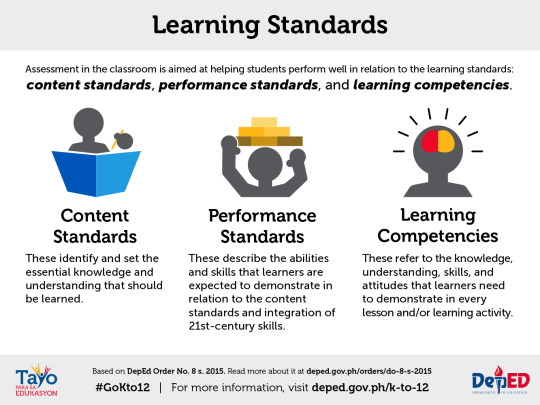
1.1 INFORMATION AND COMMUNICATION TECHNOLOGY

- ICT is the technology required for information processing, in particular, the use of the electronic computers, communication devices and software applications to convert, store, protect, process, transmit and retrieve information from anywhere, anytime.
- Information refers to the knowledge obtained from reading, investigation, study or research. The tools to transmit information are the telephone, television and radio. Information is knowledge and helps us to fulfill our daily tasks.
- Communication is an act of transmitting messages. It is a process whereby information was exchanged between individuals using symbols, signs or verbal interactions. Communication is important in order to gain knowledge. Technology is the use of scientific knowledge, experience and resources to create processes products that fulfill human needs. Technology is vital in communication.
- ICT nowadays has also widened the horizon in developing new tools or emerging technologies. Mobile devices can communicate through wireless fidelity (Wifi), Bluetooth, third generation 3g & 4g, data services and dial up services and virtual private networks.
EMERGING TECHNOLOGIES

- Artificial Intelligence (AI) - is the ability of a digital computer or computer controlled robot to perform tasks commonly associated with intelligent beings. The term is frequently applied to the project of developing systems endowed with the intellectual processes characteristics of humans, such as the ability to reason, discover meaning, generalize or learn from past experience.
ROBOTICS

- Is a branch of engineering that involves the conception, design, manufacture, and operation of robots. This field overlaps with electronics, computer science, artificial intelligence, mehcatronics, nanotechonology and bioengineering.
BIOMETRICS
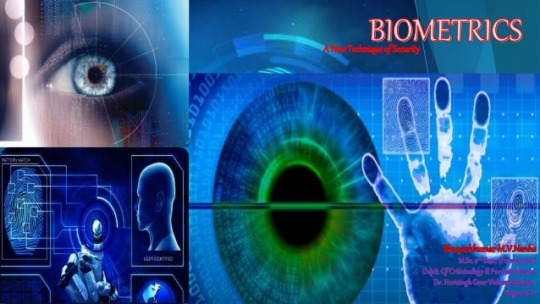
- Are a way to measure a person’s physical characteristics to verify their identity. These can include physiological traits, such as fingerprints and eyes, or behavioral characteristics, such as the unique way you’d complete a security-authentication puzzle.
QUANTUM CRYPTOGRAPHY
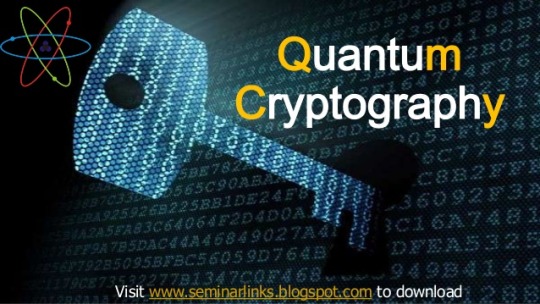
- Also called quantum encryption, applies principles of quantum mechanics to encrypt messages in a way that it is never read by anyone outside of the intended recipient.
COMPUTER ASSISTED TRANSLATION

- Involves the use of software programs to translate both verbal and written texts. Also known as machine-assisted or machine aided translation.
3D IMAGING AND HOLOGRAPHY

- Is defined as a 3D projection that exists freely in space and is visible to everyone without the need for 3D glasses.
VIRTUAL REALITY

- Refers to the computer generated simulation in which a person can interact within an artificial 3D environment using special electronic devices that can be similar to or completely different from the real world.
ONLINE SAFETY
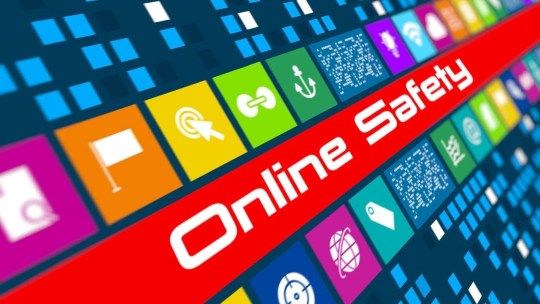
- Is the knowledge of maximizing the user’s personal safety and security and risk to private information, and self-protection from computer crime in general.
1. Know the scams
- Learn about different kinds of scams and what you can do to avoid them.

2. Think before you click
- Think twice, thrice and zillion time before click any link or buttons.
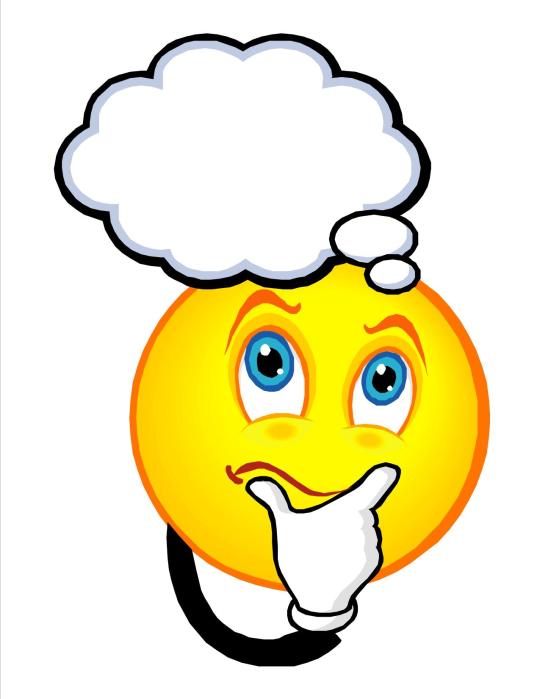
3. Safety Peruse
- These sites may have an Address that’s very similar to a legitimate site, but the page can have misspelling, Bad Grammar, or low resolution Images.

4. Shop Safety
- Don’t shop on a site unless it has “https” and a padlock icon on the left or right in the URL.

5. Kick-butt passwords
- Use an Extremely uncrackable password One like “9&4thkel965#”.
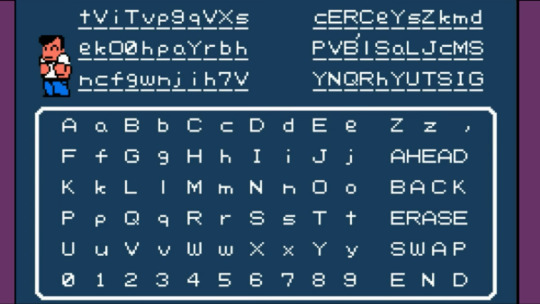
6. Protect your info’s
- Keep your guard up, Back up all your data on your computer, smartphone and tablet, theft or a cash.
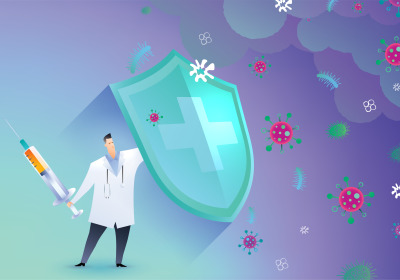
7. Watch your Wi-Fi Connectivity
- Protect your network by changing your router’s setting and making sure that you have the connection password protected.

8. Install a Firewall
- A firewall is a grate line of defense against cyber attracts.
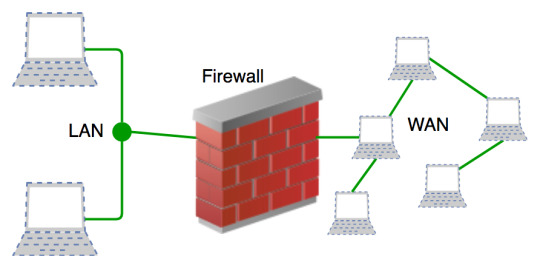
9. Keep up to date
- The best security updates automatically to protect your computer.
- Use the manufacturer’s latest security patches to make regular updates and make that you have the software set to do routine scam.

10. Use your Noggin
- Use your common sense while surfing the web.
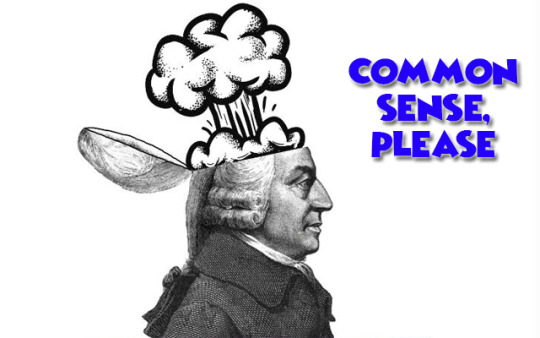
COMMON ISSUES AND CRIMES IN THE INTERNET
- CYBERBULLYING
- HACKING
- IDENTITY THEFT
- PLAGIARISM
- COPYRIGHT ISSUES
CYBERBULLYING
- Is a form of bullying or harassment using electronic means.
Cyberbullying and Cyber Harassment are also known as online bullying.
- Cyberbullying is when someone, typically teens, bully or harass others on the internet, particularly on social media sites. Harmful bullying behavior can include posting rumors, threats, sexual remarks, a victims’ personal information, or pejorative labels.
THE ANTI-BULLYING ACT OF 2013
( RA 10627 )
(Sec. 2, RA 10627) These acts are collectively “called cyber bullying” when committed online.
(Sec. 2-D, RA 10627) This covers social bullying aiming to belittle another individual or group or gender-based bullying that humiliates another on the basis of perceived or actual sexual orientation and gender identity. (Sec. 3, B-1 RA 10627. Implementing Rules).
THE REVISED PENAL CODE AND THE CYBERCRIME PREVENTION ACT.
- One who publicly or maliciously imputes to another a crime, vice, defect, real or imaginary, or any act, omission, condition, status or circumstance tending to cause the dishonor, discredit or contempt of a natural or juridical person, or blacken the memory of one who is dead may be liable for libel under this Code. (Art, 353, RPC) These acts are more severely punished when done online in addition to the civil action for damages which may be brought by the offended party. (Sec. 4(c-4), RA 10175) Cyberlibel holds liable only the original author of the post (Sec. 5(3), Implementing Rules of RA 10175) Likers or shares of a post cannot be held liable under this law.
- Slander may also be applicable to one who, in heat of anger, utters statements that are highly defamatory in character. (Art 358, RPC) Intriguing Against Honour may also find applicability when the principal purpose is to blemish the honour or reputation of a person. Hence, a blind ite is not as actionable as a named-post in social media.
HACKING

- Hacking generally refers to unauthorized intrusion into a computer or a network. The person engaged in hacking activities is known as a hacker. This hacker may alter system or security features to accomplish a goal that differs from the original purpose of the system.
- Hacking can also refer to non-malicious activities, usually involving unusual or improvised alterations to equipment or processes.
IDENTITY THEFT

- Also known as identity fraud, is a crime in which an imposter obtains key pieces of personally identifiable information, such as Social Security or driver's license numbers, in order to impersonate someone else.
TYPES AND EXAMPLES OF IDENTITY THEFT
1. True-name identity theft means the thief uses personal information to open new accounts. The thief might open a new credit card account, establish cellular phone service or open a new checking account in order to obtain blank checks.
2. Account-takeover identity theft means the imposter uses personal information to gain access to the person's existing accounts.
PLAGIARISM
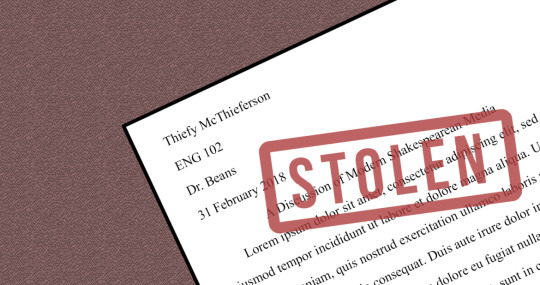
- Is an act of fraud. It involves both stealing someone else's work and lying about it afterward.
The following are considered plagiarism
- turning in someone else's work as your own
- copying words or ideas from someone else without giving credit
- failing to put a quotation in quotation marks
- giving incorrect information about the source of a quotation
- changing words but copying the sentence structure of a source without giving credit
- copying so many words or ideas from a source that it makes up the majority of your work, whether you give credit or not (see our section on "fair use" rules)
Republic Act No. 8293 [An Act Prescribing the Intellectual Property Code and Establishing the Intellectual Property Office, Providing for Its Powers and Functions, and for Other Purposes]otherwise known as the Intellectual Property Code of the Philippines.
Intellectual property rights under the I. P. Code: The intellectual property rights under the Intellectual Property Code are as follows:
1. Copyright and related rights;
2. Trademarks and service marks;
3. Geographic indications;
4. Industrial designs;
5. Patents;
6. Layout designs [topographies] of integrated circuits; and
7. Protection of undisclosed information.
The scheme of penalties for infringement has also been changed. From the previous fine of Php200 to Php2,000 and/or imprisonment of 1 year, the current range of penalties are as follows:
- For first offenders - fine of PhP50,000 to PhP150,000 and/or imprisonment of 1 to 3 years
- For second offenders - fine of PhP150,000 to PhP500,000 and/or imprisonment of 3 to 6 years
- For third and subsequent offenders - fine of PhP500,000 to PhP1.5 Million and/or imprisonment of 6 to 9 years.
- In case of insolvency, the offender shall furthermore suffer subsidiary imprisonment.
NETIQUETTE
- Is a combination of the word net and etiquette.It focuses on the acceptable behavior of a person while using the internet resource.
- It focuses on the acceptable behavior of a person while using the internet resource.
The Core Rules of Netiquette
Rule 1. Remember the human.
- Never forget that the person reading your mail or posting is, indeed, a person, with feelings that can be hurt.
- Corollary 1 to Rule #1: It's not nice to hurt other people's feelings.
- Corollary 2: Never mail or post anything you wouldn't say to your reader's face.
- Corollary 3: Notify your readers when flaming.
Rule 2. Adhere to the same standards of behavior online that you follow in real life.
Corollary 1: Be Ethical Corollary
Corollary 2: Breaking the law is bad Netiquette.
Rule 3. Know where you are in cyberspace.
Corollary 1: Netiquette varies from domain to domain.
Corollary 2: Lurk before you leap.
Rule 4. Respect other people's time and bandwidth.
Corollary 1: It's OK to think that what you're doing at the moment is the most important thing in the universe, but don't expect anyone else to agree with you
Corollary 2: Post messages to the appropriate discussion group.Corollary 3: Try not to ask stupid questions on discussion groups
Corollary 4: Read the FAQ (Frequently Asked Questions) document
Corollary 5: When appropriate, use private email instead of posting to the group
Corollary 6: Don't post subscribe, unsubscribe, or FAQ requests
Corollary 7: Don't waste expert readers' time by posting basic information
Corollary 8: If you disagree with the premise of a discussion group, don't waste the time and bandwidth of the members by telling them how stupid they are.Just stay away
Corollary 9: Conserve bandwidth when you retrieve information from a host or server.
Rule 5. Make yourself look good online.
Corollary 1: Check grammar and spelling before you post
Corollary 2: Know what you're talking about and make sense
Corollary 3: Don't post flame-bait
Rule 6. Share expert knowledge.
Corollary 1: Offer answers and help to people who ask questions on discussion groups
Corollary 2: If you've received email answers to a posted question, summarize them and post the summary to the discussion group.
Rule 7. Help keep flame wars under control.
Corollary 1: Don't respond to flame-bait
Corollary 2: Don't post spelling or grammar flames
Corollary 3: If you've posted flame-bait or perpetuated a flame war, apologize
Rule 8. Respect other people's privacy.
- Don't read other people's private email.
Rule 9. Don't abuse your power.
- The more power you have, the more important it is that you use it well
Rule 10. Be forgiving of other people's mistakes.
CONTEXTUALIZED ONLINE SEARCH AND RESEARCH SKILLS

- Online search is the process of interactively searching for and retrieving requested information via a computer from databases that are online. Interactive searches became possible in the 1980s with the advent of faster databases and smart terminals.
Advantages and Disadvantages
Advantages:
- Ability to obtain a large sample, which increases statistical power
- Data is automatically coded so no data entry errors
- Reduced cost of conducting research
Disadvantages:
Online is not totally secure and theft is one of the numerous danger it poses, researchers personal information is at risk of being access by rogue persons.
- Some of the materials on the internet have not been evaluated by experts or thoroughly screened
- Lack of accreditation and low quality
RESEARCH SKILLS
“Research” sometimes just means finding out information about a topic.You can certainly develop advanced information retrieval skills in Working with Sources. However, in specific understandings of “research” carry a lot of weight. The classic definition is that “research” leads to an original contribution to knowledge in a particular field of inquiry by defining an important question or problem and then answering or solving it in a systematic way.
- So you will need to read on to develop a relevant understanding of what research means in your subject.
- Research skills can be anything from looking at competitors and seeing what they do well to producing a written report on how your department could work better. Doing research in the world of work is all about stepping back from your day-to-day work and looking at ways you can improve.
Important aspects of research:
- Research design covers the key issues in developing a successful research project.
- Research methods takes you to resources on essential techniques for carrying out convincing research.
- Working with data will provide resources on the use of statistics and other numerical skills in research.
Improving Your Research Skills Online
1. Know your sources. Make sure to find the most reliable information which can be found in multiple sources or, better, to have the original source.
2. Use your web browser properly. Know the capabilities of your preferred browser to help make your search faster and easier.
3. Organize your bookmarks. It is to organize the links you have marked.
4. Learn to use advanced search engines. Practice using advanced search techniques which are available in Google.
5. Follow the web. Follow the web information in the web. Just make sure to read and be critical in every link you click.
SIX STRATEGIES THAT CAN HELP ONLINE STUDENTS PRODUCE STRONGER RESEARCH.
1. Contact a librarian before getting stuck sifting through piles of online information.
2. Consider that when in doubt, it's wiser to over-cite sources than risk plagiarism.
3. Use Google and other reliable resources at the beginning of a research process, not the end.
4. Don't think that the Web is your only source of information.
5. Understand the professor's expectations for citation format.
6. Understand why professors still assign research projects.
Some examples of research skills that you may have include:
1. Report writing.
2. Analyzing lots of information from different sources.
3. Finding information off the internet.
4. Critical thinking.
CHAPTER 2
APPLIED PRODUCTIVITY TOOLS
Productivity Tools
- It is a tools that can be a freeware or shareware.
Freeware
- is copyrighted, which can be used for free and for an unlimited time.
Shareware
- is a commercial software that is copyrighted, which can be copied for trial but needs to be purchased for continued use.
Advanced Techniques Using Microsoft Word
Microsoft Office Word

- One of the software of Microsoft Office 2013 suite.
- Offers a set of tools that is compared to its previous versions.
- Along with its new features are advanced techniques including hyperlinks, macros and mail merge.
Hyperlink

- A link that will direct you to another page or part of the same document.
Creating a Hyperlink to an Existing Document
- Suppose you are to link a part of your document to an existing document.
- Click your mouse on the location in the document where you want to insert the hyperlink.
- On the Insert Tab, click the Hyperlink button on the Links group.
- On the Insert Hyperlink dialog box, click Existing File or Web Page and then select the File name where the source file is located and then hyperlink will be created on your document.
- Press Ctrl+ click on the Hyperlink to open the linked file.
Mail Merge
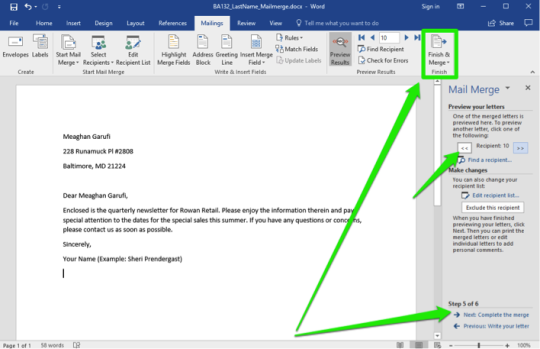
- Is a useful tool that allows you to quickly produce and send information, newsletter, resumes, or brochures to many people.
Creating a Mail Merge
1. Open the word document that you want to Mail Merge.
2. On the Ribbon, click the Mailings tab, go to the Start Mail Merge group and click Start Mail Merge and select Step by Step Mail Merge Wizard.
3. The task pane will show the Mail Merge steps 1 to 6.
PowerPoint

- It allows you to create slide show presentations wherein you can format the texts and images, adding also animations and other multimedia components interactively.
Excel

- One of the applications created by Microsoft, used to simulate a paper worksheet.
- It is composed of cells that are represented in rows and columns design to perform basic arithmetic operations.
- Widely used in accounting and financial applications, as well as statistics and engineering calculations.
The following are the common Excel Functions:
= SUM – Calculates the sum of the values of a range of cells
= AVERAGE – Calculates the arithmetic mean of a range of cells
= MAX - Gives the maximum value in a range of cells
= MIN - Gives the minimum value in a range of cells
= COUNT - Counts the number of cells in a range of cells
BENIFITS OF ONLINE SOFTWARE
Convenience - The applications should be intuitive and easy to use to ensure everyone can use them without spending a lot of time learning how.
Scalability - The applications should be able to be used in all areas of your business and also work effectively no matter how much demand there is to use them or how much your business grows.
Safety - All the applications should be safe to use with all existing systems and should have the ability to fully integrate with all other software and not inhibit the workers ability to do their job.
Sustainability - All consumer-based software should be flexible and adaptable to have the ability to last for up to 10 years, but they must be able to expand functionally with other developments in software and operating systems.
PRINCIPLES OF GRAPHICS AND DESIGN
BALANCE
UNITY
MOVEMENT
REPITITION
PROXIMITY
CONTRAST
WHITESPACE
BALANCE

- Describes the placement of elements of equal weight on the page.
MOVEMENT

- Describes the flow of elements on the page.
1 note
·
View note
Text
MC Info
Character Profile: David Grant
Name: David John Grant
DOB: January 16th, 1973
Parents: John and Elizabeth Grant
Siblings: Jacob (Elias) Grant
Nationality: British
Ancestry: Pure Blood
House: Gryffindor
Height: starts at 4’10 and ends up 6’1
Eyes: Hazel blue
Sexuality: Heterosexual
Likes: hanging out with friends, Quidditch matches, chocolate frogs, dueling, having a pint, Merula Snyde
Dislikes: also Merula Snyde, anything associated with Slytherin, negative chatter about his brother, being nagged by his mother, betrayal
Friends: Rowan Khanna, Ben Copper, Bill Weasley, Charlie Weasley, Penny Haywood (Later friends include Tulip Karasu, Barnaby Lee, Nymphadora Tonks, Andre Egwu, Jae Kim, Diego Caplan, Liz Tuttle, Fred Weasley, George Weasley, and Cedric Diggory)
Enemies: Professor Snape, Merula Snyde, Ismelda Murk (formerly: Barnaby Lee), Patricia Rakepick, ‘R’, Argus Filch
Love Interest: Merula Snyde (develops a strong crush on her during Year 4), minor flirtations with Penny and Tulip
MC’s Strengths/Weaknesses/Hobbies
Positive traits: honest | trustworthy | thoughtful | caring | brave | patient | selfless | ambitious | tolerant | lucky | intelligent | confident | focused | humble | generous | merciful | observant | wise | clever | charming | cheerful | optimistic | decisive | adaptive | calm | protective | proud | diligent | considerate | compassionate | good sportsmanship | friendly |empathetic | passionate | reliable | resourceful | sensible | sincere | witty |funny
Negative Traits: moody | short-tempered | emotionally unstable | whiny | controlling | conceited | possessive | paranoid | lies | impatient | cowardly | bitter | selfish | power - hungry | greedy | lazy | judgmental | forgetful | impulsive | spiteful | stubborn | sadistic | masochistic | petty | unlucky | absent-minded | abusive | addict | aggressive | childish | callous | clingy | delusional | cocky | competitive | corrupt | cynical | cruel | depressed | deranged | egotistical | envious | insecure | insensitive | lustful | delinquent | guilt complex | reclusive | reckless | nervous | oversensitive | rebellious
What’s their personal philosophy? Do they even have one?
A: David’s philosophy on life can be more or less be summed up in a single word: humor. Though deridingly sarcastic to those he doesn’t like, David is very witty, clever, and easy going. However, as becomes a pattern for him, often times he uses this natural humor and socialization to deflect from his own problems and hide away the fact that he feels a great deal of pain and guilt over his missing brother.
How do they feel about their status and reputation as the curse-breaker in the school?
A: David did not go to Hogwarts with a mission to find the vaults, which was just rumor at the time. He ached to find Jacob, but tried to adhere to his parents request that he not cause trouble. This, of course, did not happen, and as time goes on David more or less embraces the role of ‘curse-breaker’ and the responsibility that comes along with it. He does not seek attention, but does enjoy the fact that girls find him attractive.
Did they get sorted into the Hogwarts House they expected to? Did the Sorting Hat have any problems sorting them? Or did it not even have to touch their head?
A: David was relatively indifferent about which House he was sorted into and made that known in his private discussion with the Sorting Hat. The only house he dislikes is Slytherin and being a pure blood who saw the first war, knows of its dark reputation. It took the hat two minutes to sort David, but found his fearlessness was his most defining quality and decided to put him into Gyrffindor.
What are their coping strategies for dealing with everything (the Vaults, Jacob, etc.), if they have any?
A: David is somewhat contradictory. When it comes to finding the vaults, protecting his friends, and doing the right thing, he is largely decisive and endears himself as a leader. When it comes to his own emotions and dealing with familial issues, he’s deflective and silent. When pressed on his own troubles, he clams up and will either give a joke or change the subject. He has never been very good at expressing negative emotion and therefore when he fails to hold it back, it often explodes in the form of raw anger or tears
What electives do they take throughout their time at Hogwarts?
A: He takes Care of Magical Creatures and Ancient Runes. He is not a fan of creatures, however, and only takes the class in order to talk Quidditch with Charlie. He later drops it and takes Divination instead in order to get an easy grade.
Are they in any clubs or extracurricular activities? What about Quidditch?
A: Penny has invited him before to be in the Potions club, and though he will attend on occasion, does not officially join. Due to his curse breaking adventures, David has little time for anything extra curricular until 6th year, when Charlie invites him to join the Gryffindor Quidditch team as a beater, a position he largely excels at. Along with Charlie, Oliver Wood, and Sky Parkin, the Lions win the cup.
How studious are they? What kind of studying strategies do they use? Do they have any study groups with their friends?
A: David is quite enthusiastic about the subjects he excels in, though he is not a ‘bookworm’ like Rowan or some of his Ravenclaw friends. Often study groups are formed with the pretext of talking about something else, namely the vaults. However, he will join Rowan, Tulip, and even Merula on occasion to legitimately go over the books.
How willing are they when it comes to breaking school rules?
A: Unlike Tulip and Tonks, David does not go out of his way to break rules and doesn’t see himself as a rebel against authority figures. That being said, he has no issue bending/breaking them if he a) feels it’s to his advantage b) believes there is something greater at stake such as the safety of his friends or finding the vaults. Upon becoming a prefect, David finds this method much more difficult to follow as he has to navigate upholding his charges while also finding a new way to get around things so as to not lose his position.
Do they hang out with any of their friends over breaks? If so, which one(s) and what do they do?
A: David does not get to hang out with any of his friends over Christmas or Summer break until his fourth year when his parents take a trip to the United States during the month of December. His mom can be quite restrictive and prefers to keep an eye on her son out of fear of losing him as she did with Jacob. After his sixth year, David spent a week with the Weasley family, immensely enjoying their company. Though he was curious, Merula refused to allow him to visit her lonely manor. This was somewhat out of safety concerns, but also because she was embarrassed and did not want David meeting her aunt.
After they graduate, do they fall off the map and keep a low profile? Or do they continue to exist in the public eye?
A: Following graduation, David trains for three years to become an Auror and succeeds. He’s not necessarily in the public eye, but he’s never out of it either. Though not an attention seeker by nature, he also doesn’t shy away from it.
How does their career path differ from what they thought they’d be doing? Or does it differ at all?
A: ‘Curse-Breaker’ was a designation that David accepted but never truly embraced over his time at Hogwarts. It was Tonks who convinced him that his talents and interests were better served in Law Enforcement as the Auror office only takes the best of the best.
Do they have any hobbies? What about any talents or aptitudes?
A: David loves a pint at a pub, Quidditch matches, and going to concerts with his girlfriend and later wife, Merula. He is also quite fond of cooking various steaks and pork chops, a skill Jae later taught him when he began to live on his own. Believe it or not, he is also a talented singer, though he prefers to give way to Merula on that score, allowing her his spot on the Frog Choir. Though not enthralled at academics, David is talented in Transfiguration, Herbology, Potion Making, and Defense Against the Dark Arts. Most notably, he is one of the best duelers during his time at Hogwarts.
Do they have any favorite spells?
A: David is partial to ‘Reducto’ as he can reduce most objects to ash with it. He’ll often do this in private for fun or to vent off steam. Another, more light hearted spell he likes is the ‘Melofors Jinx’ which he uses on Merula and Ismelda more than once over the years (the spell causes the victim’s head to be encased inside of a pumpkin).
What’s one thing they did or thought as a child that they later look back and cringe about?
A: David has extremely mixed feelings about how often he used to idolize his brother. He still does to some extent, but by the time he enters his first year, it’s rather hollow and can’t help but feel a tremendous amount of guilt about Jacob and the fact that he was the only hero he ever had growing up.
If they could travel anywhere at all in the world—money, time, and language not being an issue—where would they go and who would they take with them?
A: Before Jacob’s disappearance, the Grant family took several holidays, one of which was in Normandy, France. David dreams of buying a small cottage there and take trips with his one and only love, Merula. David has also been to America and was quite fond of New York, finding the relative anonymity a perfect place to hide out if one were a wizard looking to avoid attention.
If they’re an Animagus, how easy was becoming one for them? Were they happy with their Animagus form? Or did they want it to be something different?
A: David never becomes an Animagus in my story.
Do they like what they see in the mirror?
A: David carries a cocky streak laced with vanity and knows he’s handsome to many young witches at Hogwarts. He knows and appreciates his own talent. But in terms of his own self, there is a great deal of doubt: his life, career, the vaults, family, finding his brother. Due to Jacob’s disappearance, David still feels like it was his fault that something went wrong and that his parents’ marriage became strained to the point of near divorce. He avoids these issues for the most part, never acknowledging them unless seriously prompted or pushed.
How good are they at taking compliments?
A: Very normal for the most part.
How much do they trust their friends?
A: David gets along with his friends, but due to his own inability to let go of the guilt and pain he felt when Jacob left, he does not like revealing his innermost secrets to people. He avoids talking about his somewhat unstable family life, which has become strained, stifling, and gray. He would trust his best friends in almost any other category, however, including battle or information about the vaults.
Are they pretty self-reliant? Or do they like to go to their friends for help?
A: It’s a mix. David is not one to be a martyr but he does have an obsessive streak which has a tendency to push people out when not careful. All in all, he’s very thankful for the assistance he receives from his friends
Who is their favorite Weasley? Or can they not choose?
A: David likes the Weasleys equally and enjoys Bill and Charlie in their own way, the former for being a surrogate older brother, the second for his down to earth nature and general friendliess. Fred and George are something of a nuisance with their pranks which make his job as Prefect twice as hard, however, he does hold a soft spot for them after they help him find a few secret passage ways as an apology. He does have a least favorite Weasley by the end though: Percy, whom he regards as a whiner and a tattletale.
What’s the thing they like least about themselves?
A: Despite contrasting himself frequently with Jacob, David also knows he shares a similar impulsive streak that has threatened to get him into serious trouble more than once. He’s also a sucker for women and though he never cheats on Merula, he does seek out other girls when the two break up or when they aren’t together. He also has a hidden guilt complex: everything that goes wrong in his family and relationship life he blames himself.
What’s the thing they like most about themselves?
A: David enjoys his ability to be quick with a joke and get along with most people. He’s naturally good at most things (with a few exceptions) and prides himself on being attractive to girls who see him as something of a sexy bachelor. He also comes to realize he’s a natural leader and that people tend to gravitate towards him when a dangerous or difficult situation comes around.
How bad is their temper? Do they tend to lash out at others or themselves?
A: David is not temperamental and not easily angered due to his good nature and sense of humor. However, if pushed too far, a quiet rage and tenacity overtakes his mind, blocking out all else until the episode is over. His anger is usually in response to something else- bullying, bigotry, or attacks against his family. During Year 6, David lashes out far more frequently than he usually does, alienating himself somewhat from his longtime friends. He mends the relationships later on, after discovering he was often his own worst enemy and critic.
What’s their biggest regret in life, if they have any?
A: Two in particular. He wishes he could have been there to prevent Jacob from leaving. The second is the way he handled his first break up with Merula. He felt it was his fault for letting her get tortured by Rakepick, but his own inability to solve the problem and Merula’s own stubbornness led to their parting of ways.
What kind of first impression do they tend to leave on others?
A: Carefree, funny, and witty with a zest for life.
What is the achievement they’re most proud of?
A: Even throughout his curse breaking adventures, David is most proud of his becoming an Auror and somehow convincing Merula to become his wife.
Do they like having photos taken of themselves?
A: David has a knack for taking goofy photos.
What’s one big way that your MC differs from the in-game canon?
A: I feel David Grant definitely has a more sarcastic streak and is not quite as much of a stickler. But all in all, he’s got personality. Most people’s MC’s are pretty much brand generic hero character. David, while a hero, is also a deeply flawed, wise cracking, cocky, baggage ladden teen. That reaches its peak during Years 5 and 6 and it’s only during Year 6 he manages to let go of much of the anguish he was holding onto in order to become a more complete person
What does their name mean and why did you choose it?
A: David is a common Anglo/American name that derives of course from the Hebrew King David in the Torah/Bible. I chose it for two reasons 1) it seemed to fit well with the last name I had in mind 2) it’s also my father’s name, and I modeled the character partially after him
If they’re an Animagus, why did you choose the form for them that you did?
A: David did not choose to become an animagus
How has your MC changed since you first created them?
A: Though I am still in the process of writing the story, David will go through many ups and downs before completing his arc. As an eleven year old first year, he is a curious, funny, talented, but guarded person and those traits become more intense/exaggerated as he gets older. His arc doesn’t come full circle until Year 6.
How well do you think you and your MC would get on?
A: At times really well and other times not. He is modeled after myself in many ways, but David has a higher degree of confidence, leadership, and withholds his feelings as opposed to me, a guy who wears his heart on his sleeve. I’m sensitive by nature, he’s not. But we do share a few talents- singing music, being generally good at sports and watching it, bar trivia, cooking, etc. The thing that we share above all is passion about a topic we enjoy that can become a full blown obsession. I have that feature to my person and so does David. All in all, as adults I would like David a lot and I think he would like me too.
10 notes
·
View notes
Text
//Y’all I hope you like text walls, because that’s what yer getting
|| The Basics ||

Name: Goro Akechi
Nickname(s): Detective Prince, Crow, Black Mask
Age: 18 (20 in some AUs)
Species: Human
Religious Belief: Not religious, would probably smile and nod if you said god deserved a shot in the head.
|| Personal ||
Sins: Lust / Greed / Gluttony / Sloth / Pride / Envy / Wrath
Virtues: Chastity / Charity / Diligence / Humility /Kindness / Patience / Justice (He questions why chastity is a virtue but admits to being a virgin)
Primary Goals In Life: Depends on the AU. The usual answer is “Make my dad’s life hell, then kill myself”. In the Amnesiac AU, his goal is just to regain his memories, as he knew he was working on something very important with Wakaba before the loss of his memories. In the Post-Game AU, he’s just trying to figure out what to do with his life.
Languages Known: Japanese, some English (he’s not great at it but he tries.)
Secrets: MANY. His whole life is a lie Also he’s gay. He’s trying to keep that a secret but even some of his fangirls have figured it out.
Quirks: Names everything in his house, obsessed with animals and pets but only has a roomba, gets distracted while talking easily and just starts rambling, gets much more formal when nervous, forgets to eat but when he does he eats p much everything, never seems to gain weight no matter what he eats, his hands are super sensitive so he almost never takes off his gloves, overthinks everything.
Savvies: Logic, deduction, investigation, planning, athletics, biking, bouldering, academics.
|| Physical ||
Height: 5'10″
Weight: 141 lbs
Scars/Birthmarks: None.
Abilities/Powers: A... a lot. Driving shadows berserk, Wild card abilities (multiple personas, etc), also he’s a very good detective despite uh, initially basically being rigged into his position.
Restrictions: He’s weak to curses, both in the literal metaverse sense and the metaphorical sense. He really doesn’t handle the negative well-- criticisms, anger, sadness, etc. He is desperate for positive attention and craves love, to the point he’ll do stupid, stupid stuff to obtain what he wants. He has serious trust issues and mental health problems. Also, he’s not as free as he’d like in any aspect. His job and his conspiracy work basically make him a puppet to adults, while his reputation prevents him from being more open with himself and living normally, and his fangirls make it difficult for him to move about the city freely. He’s in a gilded cage.
|| Favorites ||
Favourite Drink: Coffee. (In terms of alcohol, a Kahlua iced coffee.)
Favourite Pizza Topping: I can see him liking Margherita pizza and pesto pizza a lot.
Favourite Color: Beige. YES REALLY. Second favorite color is wine red.
Favourite Music Genre: death metal He’s not picky, but classical or instrumental stuff is nice! He really likes the work of Yuki Kajiura!
Favourite Book Genre: If it is a book that isn’t a textbook, he will read it. He actually likes fantasy and sci-fi books with deep lore, but he doesn’t have a lot of time to read them. He has a secret love of romance novels because they’re the closest he’ll ever get to romantic interaction.
Favourite Movie Genre: He actually doesn’t watch a lot of movies. Romance movies though. He cries over romance movies.
Favourite Season: Spring~. It’s the perfect season to go out and do things!
Favourite Butt Type: He doesn’t care as long as it’s cute and perky. Ren’s. Ren’s butt basically.
Favourite Swear Word: Judging by the game? Shit.
Favourite Scent: Vanilla. His shampoo is vanilla scented. He likes the scent of coffee a lot too.
Favourite Quote: He’ll say it’s some deep philosophical quote from something obscure. He’ll say that. But. His favorite quote is “I am the rose that slashes evil”. He really likes Tuxedo Mask.
|| Fun Stuff ||
Bottom or Top: Bottom mostly, but he’d probably switch every once in a while.
Sings In The Shower: Only when he’s in a really good mood. So almost never.
Likes Bad Puns: Will shoot you if you make one in his presence.
Morality: Lawful / Neutral / Chaotic / Good / Gray / Evil (the crossed out ones are the real ones)
Build: Slender / Scrawny / Bony / Fit / Athletic / Herculean / Babyfat / Pudgy / Obese / Other.
Favourite Food: He doesn’t actually know! He does like sweets a lot though, and genuinely does love pancakes. Despite being something of a glutton/gourmet/foodie, he doesn’t really pay much attention to what he’s eating most of the time-- mostly because he barely eats.
“Boss” Theme Music : Will Power
Their Opinion On The Mun: "She seems like a reasonable enough person, however... if she could stop calling me... any of the things she calls me... I would greatly appreciate it.” He’s being nice he hates my guts.
|| The Basics ||

Name: Ren Amamiya
Nickname(s): Renren, Frizzy Hair, Joker, Whatever insult Akechi feels like calling him at the moment.
Age: 17 (19 in some AUs)
Species: Human
Religious Belief: He’s not religious but he would say Satanism to troll people.
|| Personal ||
Sins: Lust / Greed / Gluttony / Sloth / Pride / Envy / Wrath
Virtues: Chastity / Charity / Diligence / Humility /Kindness / Patience / Justice
Primary Goals In Life: Dependant on the AU. He considers reforming society to be extremely important in all of them, though. It’s more a matter of what he decides to focus on. Default, his main focus is on the phantom thieves. Black Gloves Ren’s ultimate goal is to free Akechi from the rigged game they’re playing and give him true freedom and happiness. Post-Game Ren’s goal (which he’s embarrassed admitting) is to get into politics so that he can campaign for human rights (especially LGBT rights and criminal justice reform), and one day making it so he can one day marry the person he loves. (He also wants to propose to Akechi literally the second gay marriage is legal in his country, either in public or private.)
Languages Known: Japanese, English (Black Gloves speaks it fluently, the others are about as good as you’d expect a Japanese high schooler to be at English).
Secrets: Only really applicable to Black Gloves Ren. I mean, aside from the whole being a phantom thief thing. Black Gloves Ren is hiding that he remembers the timelines because he thinks nobody will believe him.
Quirks: Basically unreadable most of the time. His poker face is godly. He flirts a lot, but if you flirt with him he’ll absolutely lose it. Cats seem drawn to him. Tends to bring up earlier conversations much, MUCH later at the worst time possible. A huge troll always.
Savvies: MAX STATS BOYEEEEE, athletics, is being a cocky little shit a savvy? Because that. Making coffee, cooking, somehow getting the top grades in school without ever studying, out-gambitting major conspiracies.
|| Physical ||
Height: 5'9″
Weight: 145 lbs (yeah he weighs more than Akechi. It’s mostly muscle.)
Scars/Birthmarks: Idk why but I can see him having a mole on his right shoulder. I have no good reason for this. My brain just says “yes, this would look good.”
Abilities/Powers: Wild Card abilities.
Restrictions: Much like his persona, he’s weak to bless. By which I mean his luck is total ass. Nothing goes right for him, no good deed goes unpunished, and if it weren’t for his sheer skill and the people around him, he’d basically be totally fucked always. Also, he’s kind of a criminal on probation and whatnot.
|| Favorites ||
Favourite Drink: Coffee.
Favourite Pizza Topping: “Pineapple and anchovies.” Ren. Ren. Now is not the time to troll. He actually doesn’t care.
Favourite Color: Beige. Black and dark gray. “Like my soul.” REN PLZ.
Favourite Music Genre: He likes things like Jazz and Rock.
Favourite Book Genre: B O O K. He’ll read pretty much anything.
Favourite Movie Genre: He’s not particular. He just likes watching movies in general. Obviously though, he loves heist/criminal/thriller stuff.
Favourite Season: Winter. He likes snow and cold.
Favourite Butt Type: “Same as Sir Mix-A-Lot” Ren, why do you know that song????
Favourite Swear Word: Fuck. Preferably said quietly.
Favourite Scent: Coffee. He also likes the scent of curry, but he wouldn’t want to be surrounded by it all the time.
Favourite Quote: “Where is the real you?”
|| Fun Stuff ||
Bottom or Top: He likes being a top but he’s also a massive masochist so, honestly, it’s 50/50.
Sings In The Shower: No, but he’ll hum.
Likes Bad Puns: “I am the pungeon master, here to punish evildoers.”
Morality: Lawful / Neutral / Chaotic / Good / Gray / Evil
Build: Slender / Scrawny / Bony / Fit / Athletic / Herculean / Babyfat / Pudgy / Obese / Other.
Favourite Food: CURRYYYYYYYYYY. It wasn’t his favorite food before going to Tokyo, but it is now. It just has a lot of good memories for him.
“Boss” Theme Music : Last Surprise
Their Opinion On The Mun: "Heh. She’s fun. I’ve never seen someone who pushes Akechi’s buttons as much as I do.”
Tagged by: Stole
Tagging: All yall
5 notes
·
View notes
Text
Legal Week 2 Blog
Define what it means to be a “fiduciary” or to possess a “fiduciary duty”
In the most basic of definitions, what it means to be a fiduciary or possess fiduciary duty is someone who is in charge of responsibilities on behalf of someone else. In a more technical term it is, “in law, a person who occupies a position of such power and confidence with regard to the property of another that the law requires him to act solely in the interest of the person whom he represents,” (Britannica Academic 2019). To be a fiduciary or possess a fiduciary duty means that you have become responsible to make decisions, as the third party, in the interest of your client, your place of work, or even of a specific person – with their interests, needs, and financial obligations at the core of your decisions. It is in short, the duty to care and the duty for loyalty of that care (Fiduciary Duty, n.d.). “Fiduciary duties and remedies draw on a common source – equity,” (Frankel 1998). And for the purposes of this assignment and for the class, I think it is important to discuss the fiduciary in the business world.
Identify the five duties an agent is said to owe his principal
The five duties an agent is: “put the client’s best interest first… act with prudence; that is with skill, care, diligence, and good judgement of a professional… do not mislead clients; provide conspicuous, full and fair disclosure of all important… avoid conflicts of interest…fully disclose and fairly manage, in the client’s favor, unavoidable conflicts,” (Aikin 2009). Which is all to say that there are rules that are set forth by law, standards adopted by corporations, and parameters in which we must all function at work. It is the duty of a fiduciary of each station to uphold these five duties and the principal is the business.
Give an example where you have seen or experienced the concept of a fiduciary relationship in your own personal or business life
Over the course of my years in the work force it has become apparent to me that these fiduciary duties have been built into the system in which we all operate. It has always been a pretty seamless idea that you operate at work based on the standards set forth from law, from corporate dictation from higher offices, and with the intent to advocate for whichever department you represent. But these are the frameworks in which set the initial boundaries at work that we have all become accustomed to.
I have worked in several management positions in both very large corporations as well as smaller ones and this concept of fiduciary duty plays the biggest role in decision making, transparency, and upholding the standards at each company. As opposed to personal wants for success in my roles, I have focused on cohesiveness in business operations so that I can intelligently act on behalf of an organization. Currently, I hold a title that weighs heavily upon this concept of fiduciary duty because each department has, at many times, conflicting fiduciary duties but still under the same umbrella of a united, corporate front. So, with the purposes of the larger picture in mind - this is my primary fiduciary duty to maintain responsible decision making on behalf of the company.
But a good example for this situation is when departmental issues arise that it tends to get tricky with companywide fiduciary duty working alongside departmental agendas to make sure the business is still moving forward. For a little background on my example, my current title is the Vice President of Operations, but I also hold the seats of Director of Finance and the Director of Human Resources, until we find suitable replacements, and I am accountable to the CEO who is the majority owner of the company. We are currently in the middle of great growth as well as a corporate restructuring so suffice it to say, there a many moments and examples of fiduciary relationships that come into play. A great one to reference is the human resources responsibilities of upholding policies and giving aid to departments with staffing and the financial responsibility of not overextending the budget that I create under the parameters of the business. It is probably the biggest battle between upholding fiduciary duties departmentally as well as organizationally at the moment. And this moment of my many “hats” as I like to call it, makes me truly appreciate the concept that we are learning about in this week’s blog and has made me take a step back to reflect on the content and previous work experiences.
Have you been involved in a situation where you felt a fiduciary duty had been breached? Were you correct, and if so, why?
There have been moments where this does occur - where there is a breach of fiduciary duty and the conduct of an individual is called into question at work. An example that I can give is at a previous place of employment, when an upper management employee used their power and authority to make a decision on hiring an associate based on previous relationships as opposed to qualifications.
During the absence of a human resources representative during this hiring process, a person with no relevant qualifications was hired with zero protocol being followed during the hiring process (resume, formal interview, references checks, offer letter presented and signed, appropriate pay and benefits assigned to the station, etc.). And this associate was soon after terminated due to various company infractions and inability to understand or complete basic job functions. This was a moment that I advocated for further investigation due to the short amount of time the associate was with us from hire to termination. I pulled performance reviews and disciplinary actions documented against the associate, given out by a different manager not involved in hiring but involved in the direct management of the associate, and eventually this discrepancy of employment was discovered.
It was from there, due to this associate’s anger with the company after a valid termination, that I had a feeling that there had been a breach of duty from a higher office that deserved looking in to. And, personally, it greatly bothered me that an associate who, by no fault of their own was hired for the wrong reasons and now was without employment. From there, I pushed for a larger investigation into the upper management employee who was responsible for the hiring. I discovered that this was not the first time this practice as well as other extremely questionable practices were seen. It was through thorough research, documentation, disregard for company and legal policies, and a truly deep dive into this upper management employee’s actions over the years that I was able to make a case to the other executives to move to terminate. This upper level employee was, for quite some time, was no longer holding the standards of the greater good but rather for their own personal gain of hiring friends instead of appropriate work partners. This, ultimately, affected business operations because it was discovered that this was not the first incident that departments were previously staffed without participation of senior leadership of the respective departments and left with associates that were not fit for their positions. And it became known that people feared retaliation from the upper management person who was responsible for these moments. In this case of fiduciary duty in business, I was correct, and it was a difficult situation to be a part of the research that lead to determination to terminate this upper management employee.
Aikin, Blaine. 2009. Retrieved from
http://www.thefiduciarystandard.org/images/Summary_5Principles.pdf
Britannica Academic. 2019. https://academic-eb-com.proxy.davenport.edu/levels/collegiate/article/fiduciary/34192
Fiduciary Duty. (n.d.). Retrieved from https://www.law.cornell.edu/wex/fiduciary_duty#.
Frankel, Tamar. 1998. Fudiciary Duties. The New Palgrave Dictionary of Economics
and Law. Vol 2 p. 127-128. Retrieved https://cyber.harvard.edu/trusting/unit5all.html
1 note
·
View note
Photo

POOF, FOOP, AND HICCUP: IN SHORT
Brief bios about a teen celebrity, a prince, and a prince’s alternate personality
Bonus trivia: Their Refracted counterpart is named Poppy
POOF NEBULA FAIRYWINKLE-COSMA
Occupation: Student; celebrity since birth; saucerbee team captain; on-campus repairman
Birthday: Third Monday of February, Winter of the Frozen Planet (Soil Subyear)
Height: 3′10″ (Tall for a fae)
Age As of Devil’s Backbone: 163,254 (Mentally young teen)
Alignment: Lawful Good
MBTI: ESFJ
Love Language: Quality time
Handedness: Right dominant
Hometown: Dimmsdale - A major city in California, USA, Earth
Core: Searchlight
Core Color: Yellow (No additional layers)
Crown Lift: Very high
Wand Type: Kitnut
Fagiggly Color: Lavender
Preferred Shapeshifting Form: Cougar
Bio: While he may have been born in a Fairy World hospital, there’s no denying Poof was raised on Earth among the humans. As he grew up, Poof frequently compared himself to his parents’ godkids- whether they were humans, Delkians, or what have you. His first 1,000 years were divided between Spellementary dorms and visiting his parents; it was only after Dusty was born that Cosmo and Wanda pulled out of godparenting for awhile to raise their two young sons. Poof spent his formative years outside of Fairy World and has never identified as closely with Fairy culture as his peers- or even his brother Dusty. Furthermore, Wanda left the traditional Fairy beliefs she was raised with behind when she married Cosmo (who came from a family that never believed in them strongly). This combined with his celebrity status and the fact that he’s a gyne have made Poof feel like an oddball despite his celebrity status. And we haven’t even started on the legends of the Red Ninja...
Poof wasn’t there when Timmy parted ways with Cosmo and Wanda, and he’s never gotten over it. Following his separation with Timmy, he had a fight with his parents, flung himself full-force into his friend group, and has yet to pull back. He never attached to any of his other godsiblings, even the ones who lasted for years, and he doesn’t like using the term “godbrother” anymore. While he doesn’t have separation anxiety and he trusts his parents, he does have abandonment issues when it comes to his friends. Foop suspects the reason Poof taunts him is purely to encourage a reaction; neither of them likes to surrender and they both retaliate to pranks. Foop isn’t going anywhere fast.
Being raised by godparents on the job, surrounded by playful godkids, having a goofy father, and being popular at school has turned Poof into a fairly relaxed kid. He isn’t easily upset, and is more likely to get agitated than angered. That said, he gets along better with relaxed peers than those with highly energetic personalities (His dad’s level of excitement he can take, but Chloe pushes it). Although he loves hanging with his friend group at school (which consists mostly of popular kids through association with him), Poof is a friendly soul who is always keeping an eye out for someone to cheer up in some small way. He has his oblivious moments, but there’s no denying he’s a nice guy who sees just about everyone as his friend... while fretting internally that he’s an accident-prone dummy and people only hang out with him because he’s popular.
Notably, Poof is the narrator of the 130 Prompts “Second Chance,” “Tools of the Trade,” “Opinion”, “Unwelcome,” “All I Ever Wanted,” and “Happy Holidays,” as well as the focus of “Don’t Let Your Babies Grow Up to Be Pixies.” He’s a major character in Hawthorn Haven and several other Prompts as well. He’s been pining after Goldie all his life despite the low opinion Fairy society has of will o’ the wisps, but as he’s entered his teen years, he’s reflected more on the customs of his kind- his subspecies are said to pair for life, after all, and teen Poof has found himself wondering if he really, truly is prepared to commit to her. This has placed strain on their relationship, especially as his social status - and Goldie’s - become increasingly important in their lives.
Related:
Full Character Profile || Family Tree || Dorm Layout || Fairy World Home Layout || Fairy Class Overview || Cosmo’s and Wanda’s Bios || Dusty’s Bio || Timmy’s and Chloe’s Bios || Goldie’s Bio
ANTI-POOF “FOOP” ANTI-COSMA-ANTI-FAIRYWINKLE
Occupation: Heir to the High Count seat; TA at Carl Poofypants High; scientist
Birthday: June 13th, Spring of the Frozen Planet (Breath Subyear)
Height: 3′6″ (Tall for an anti-fairy; average for a fae)
Age As of Devil’s Backbone: 163,254 (Mentally young teen)
Alignment: Chaotic Evil -> Chaotic Neutral
MBTI: INTP
Love Language: Words of affirmation
Handedness: Left dominant
Hometown: Luna’s Landing - Anti-Fairy World’s capital city, located in a crater and lit by glowing crystals
Core: Searchlight
Core Color: Yellow (No additional layers)
Crown Lift: Very high
Wand Type: Obsidian
Fagiggly Color: Blue
Preferred Shapeshifting Form: Hound
Bio: Foop was born bearing the color-eye virus his people believe to mean the nature spirits favor him, and promptly threw Anti-Cosmo’s heir presumptive (Talon) to the back of the inheritance line. Although he himself could be displaced as High Count should he prove too unstable (especially since his younger brother Smoky would be an equally legitimate heir to the throne), Foop has coasted through life on a swollen ego with his plans laid out since birth. He knows what he wants, will go through enormous efforts to get it, and his mind isn’t easily changed once he gets set on something.
Foop had an extremely rocky childhood. He wreaked havoc across the cloudlands as a newborn and spent his early days in solitary confinement, visited only by Jorgen and his therapist from Wish Fixers. Shortly after escaping Abracatraz, he landed himself in an alternate universe (à la “Playdate of Doom”) and spent several years during the frozen timestream “raised” (tormented) by alternate versions of his parents and himself. He certainly wasn’t in a good place mentally when he got himself out of that situation and has been working with his therapist ever since. At last rehabilitated enough to attend Spellementary School, he struggled socially, academically, and mentally. The only reason he can function at all is because his alternate personality, Hiccup, withholds his traumatic memories. Even with Hiccup’s help, Foop faced many difficulties in his youth, including trying to care for his injured mother and Anti-Fairy World when his father disappeared for 77,000 years during the May Blossom War.
Foop is the protagonist of Identity Theft and appears in many 130 Prompts and other pieces. After a few early attempts to seize control of Anti-Fairy World (and Fairy World while he was at it), he eventually accepted the fact that his parents were going to give him the position when he was older anyway and he may as well take advantage of their hospitality and pursue his own hobbies before worrying over politics too much. He’s reluctantly settled into a routine of playing nice at fancy parties, interspersed with his studies of biology and horticulture. With the exception of the years he dropped out of school to support his mother, Foop grew up alongside his school roommates (Poof, Sammy Sweetsparkle, and the young pixie Finley). He's close friends with Goldie Goldenglow’s counterpart, Anti-Marigold. Anti-Fairy society looks down on Anti-Marigold for being an anti-will o’ the wisp (and having moth characteristics instead of bat ones), so in their older years he courts her as his secret mistress while publicly courting Anti-Coriander, the girl his parents picked out for him.
Never content to sit around drumming his claws, Foop is always keeping busy. He devours his textbooks the moment he gets his hands on them, takes attentive notes, and reviews them even after he’s memorized the material. Despite their similarities, he’s quite different from his father, who barely glanced at books in school since he figured he was smart enough to get by without working for it. Foop may share Anti-Cosmo’s passions for success and drama, but their ways of executing plans are drastically different; where Anti-Cosmo doesn’t fritter over details and throws plans into action too early, Foop works and reworks and combs over every tiny segment of his ideas until opportunity passes him by. Anti-Cosmo sees jail time as a stepping stone towards his long-term goals while Foop considers arrest to mean absolute failure. He also inherited several interests, his clumsiness, his appreciation for the little things in life, and part of his speech pattern from Anti-Wanda. No DNA test necessary!
Foop often uses he/him pronouns for himself, though uses we/us pronouns when referring to both himself and Hiccup. The older he gets, the more common his usage of we/us becomes.
ANTI-POOF “HICCUP” ANTI-FAIRYWINKLE-ANTI-COSMA
Occupation: Alternate personality; eloquent politician
Alignment: Lawful Evil
MBTI: ENFJ
Love Language: Physical touch
Handedness: Right dominant
Wand Type: Copper
Fagiggly Color: Blue
Preferred Shapeshifting Form: Hound
Bio: Sweet without ulterior motives, charming without a hint of irony, blunt to an extreme degree- that about covers it! Hiccup is Foop’s alternate personality and views himself as Foop’s older brother. He springs up when Foop’s emotions become unstable and handles situations as best he can. In Foop’s early years of working with his therapist, his goal was to integrate Hiccup’s aspects back into himself, but as time passed and it became clear Hiccup wasn’t going away any time soon, they began working together to survive their crazy life. Hiccup has full access to Foop’s traumatic memories and guards them closely no matter what mind-reading magic someone tries to use on them. Occasionally a bad memory slips through his careful defenses (and it’s certainly harder to resist such magic when Hiccup, not Foop, is the one it’s being used against), but Hiccup sees himself as Foop’s closest guardian and defends him like a mother bear.
Hiccup began to take form as early as Abracatraz, though it wasn’t until the alternate versions of Foop and his parents began tormenting the original Foop that Hiccup quickly asserted himself as his brother’s protector. He envisions himself with curly blue hair and a larger body type than Foop, and majorly struggles with body dysphoria. He’s a brave soul who isn’t afraid to stand up for himself or for Foop, but years of having his identity invalidated have left him plagued with feelings of self-doubt. He knows most people see him as “the second personality” and don’t treat him as a real person, and he’s tried to accept that for a long time. He has his own friends, hobbies, and opinions separate from Foop’s and sees himself as an individual who just happens to share a body with his brother. He cares deeply for Foop and doesn’t want to hurt him or steal away his inheritance- he just wants to be loved and allowed to live his own life to some degree.
Hiccup plays major roles in the 130 Prompts “Shadow,” “Live For the Moment,” “Not Like You,” and “Really, Really Can’t.” He appears in several other pieces and plays a major part in Identity Theft, though his biggest role comes in Hawthorn Haven when he leads many Fairy youth away from Fairy World and Anti-Fairy World to build their own united society. Hiccup may be less inclined towards chaos, but he does have his own ambitions of creating a utopia where everyone will love him... I mean, love each other. Though he has a truly kind personality, Hiccup does have a mercilessly savage streak running through his veins. His loyalties lie with Foop before anyone else, and to his family after that. You mess with the Anti-Fairywinkle family, you mess with Hiccup. After some of the tortures he put up with a child, he has few qualms about throwing you through them, too.
Foop has a lot of conflicting feelings about Hiccup. Often, he feels his alternate personality has seized control of his life and makes things unfairly harder for him than they are for any of his peers. He has a short temper and shoves blame on Hiccup constantly, often snapping at him when Hiccup makes an impulsive nice decision and ruins Foop’s plans or reputation. However, Foop sees Hiccup as an individual person separate for himself; the two keep each other up to date on things, try not to borrow each other’s stuff without asking, and don’t read mail, diaries, or mess with one another’s friendships. In their adult years (when they both identify as Anti-Poof and stop using their private names, as Anti-Fairy custom dictates), Foop becomes more and more uneasy with Hiccup using “his” body to flirt with, kiss, and sleep with people besides Anti-Marigold... but by that point the lines are getting blurrier and blurrier to the point he starts wondering if he’s even the dominant personality at all.
Their immediate family have accepted Hiccup’s existence and make an effort to show him affection, even if they don’t perfectly treat him as equal to Foop. Hiccup appreciates their efforts anyway. His family have a nickname for him - Puck, or sometimes Pucky - that he embraces. Most of his extended family refuse to acknowledge his existence, which is just his burden to bear in life.
Related:
Full Character Profiles (Foop || Hiccup) || Family Tree || Blue Castle Layout || Dorm Layout || Anti-Fairy Class Overview || Anti-Cosmo’s and Anti-Wanda’s Bios || Smoky’s Bio || Anti-Marigold’s Bio || Anti-Coriander’s Bio
1 note
·
View note
Text
I can’t write like I used to, so I’m sorry. I used to feel like words were my everything. They were ropes, bonds, bands around my shoulder and chest that grappled me back down when flying was dangerous. They were moral backing, sharp glimmering silver knives in a verbal body that I could throw at the world. When I needed not to fly but to just ultimately prevail, when I needed to be sharp, supreme, and superior, those ropes bound to keep me safe propelled me into the sky. I was tethered and free, like some sort of twisted propaganda.
I feel like an open expanse, like a concave and rotting pumpkin, innards all exposed and vulnerable, but so disgusting no one would ever take advantage. This year took something away from me. I don’t what it is- curiosity, hope, fire, human connection? But I’ve grown distant and restless and filled with hatred, pain, worry, anxiety, fear, fright. I’ve grown full of fright and emptiness. I’ve learned that making something out of nothing is difficult when you don’t care, and that the opportunity to create nothing out of something is seized by an other worldly power that hates you and want to rip you apart and tear you down, that gets some sort of sick, sick, sick, enjoyment out of this, out of something that just hurts and hurts, and aches so bad the marrow of my bones screams out in pain. I can’t.
I used to have this gift for enrapturement. I would capture people to set them free. The same power that the words gave to me, I would give it to others. I loved speaking. I loved writing, I loved telling, exposing, believing, influencing. I can’t help but feel like everything I do now is a corruption, something everyone can easily sense. I feel like a faceless background character that moves constantly in the midst of something important but has no value to be included in writing or characterization. Now, I wonder all the time how people can talk so much. I have nothing to talk about that feels anything other than frail, fake, like plastic, like when you lick your own lipstick off by accident and it’s absolutely disgusting to taste.
People are put off by me, I know this. I don’t respond the way I’m supposed to. My morals are different. I am consistent. I think killing bugs makes you a terrible person. I also feel like we should do extreme things to create a better world. Maybe it's suppressing these urges, that would surely lead me to do something drastic, that causes me to feel as if I am forsaking myself. I hate the world, the people of the world, and want to do nothing for it, but I love the world, and my essence cries out for me to act for it. Maybe it’s the effort to push everything away so I can live a simple, comfortable, long life, that causes me to feel anything but, wrapped in warm, soothing blankets of hardened, stiff, cold apathy.
If I had the opportunity between living the way I am now, living the way I wish to, by changing everything, or being subdued into a lucid dream for the rest of my life, I would with no doubt, choose the lucid dream. Maybe some moral law would cause me to in fact say no, but the painful realization is that I ultimately yearn for something else in this world that I can only find in a place that doesn’t exist.
I used to be hot all the time, like an overflowing, scalding cup of coffee, darkened swirling amber that invigorated. I’m cold now. Physically cold. All of the time. Buried under layers and layers, all I feel is the iced flesh I am. Dreams haven’t been an escape recently. I dream of old fears, or new fears, brought to wherever I am. I wake choking on fear, and with the most horrid strange feeling that the monster of all my dreams exists, and that it's watching me, with eyes the peer savagely, perversely, void of humanity, but filled with the worst reckonings of the universe, and everytime I turn my back it looks at the planes of my shoulders, the fragile slope of my spine, and sees into the cells of my body, and recognizes the cold and feels my skin and recognizes the distance. It craves the distance I have towards the world, the detachment, and that it’s drawn to that. It’s drawn to that and it feeds off it, and it inspires that, and thus forms a cyclical pattern that can only result in a total spiral to something absolutely horrendous and it makes me so terribly afraid. It makes me so fucking scared.
I want to escape but there’s nowhere to go. I’m painfully afraid of death and overly attached to being young forever.
Writing this, in my free time when no one is around, I feel like something is watching me again, like I’m doing something wrong for writing this, like I might never get to finish, like I’m sinning. My stomach is twisting, the sky is a haze today, nothings particularly bright or dark, but everything is a wash of gray and mist and constraint and chill today. It’s like its waiting, whether for something to start or end, close or open, but its patient. I am not, I am worried about what’s next. I don’t want to die.
Women are encouraged to be flighty and stupid, and needy. Men are encouraged to pretend like they have everything, including the answers, and speak the most limited bullshit with this emotion behind it like they have discovered the world. And then the girls coo and fawn, as if pretending they have not the capabilities to comprehend such a great failure as that idea. Now I am angry, which I originally treasured. It was the only thing I could use to get myself to care again, without caring enough for everything else I’ve been bottling to come pouring out. Anger is a distractor, a motivator, and invigorator. Now I just feel sick. And then when I drop again I’ll feel even more empty.
Food is like sand to me. As pleasant as its taste it feels like nothing, quickly over once eaten, I seem to miss the point. Intimacy, relationships, I can’t do them. I feel like its so one-sided, like I’m not ever going to be able to feel towards them the way they do towards me, and I hate that type of lying. Academic accomplishment hurts because I am a prideful person who enjoys success but at the same time I understand that success in this absurd world means little to nothing in the long run, and that I should be doing something meaningful and fulfilling. But what is that?! I just want someone to tell me, but I know that they’d be wrong! I want to succeed and I also don’t! I want to abandon this whole meaningless charade of a system with its pointless barriers and struggling maze to reach a location I may find despicable. I am a body trapped in a system to which my mind has succeeded in leaving and isn’t that just the worst thing imaginable.
I want someone to tell me what to do, how to feel, how to think, to relieve the pressure of being free - maybe I’m too free, could that be the issue?- but I abhor the idea of anyone telling me what to do, when I know they don’t truly understand, when they are less than in the ways that matter to me.
I want to enjoy conversation, relationships, achievements, stupid arbitrary things that everyone else does. But I feel like I have no voice, like I don’t have any of the words to say anything besides this, and most definitely not enough to do all of those so very human activities. Why have words forsaken me, where have they gone?
All I can ask is this:
Please come back
1 note
·
View note